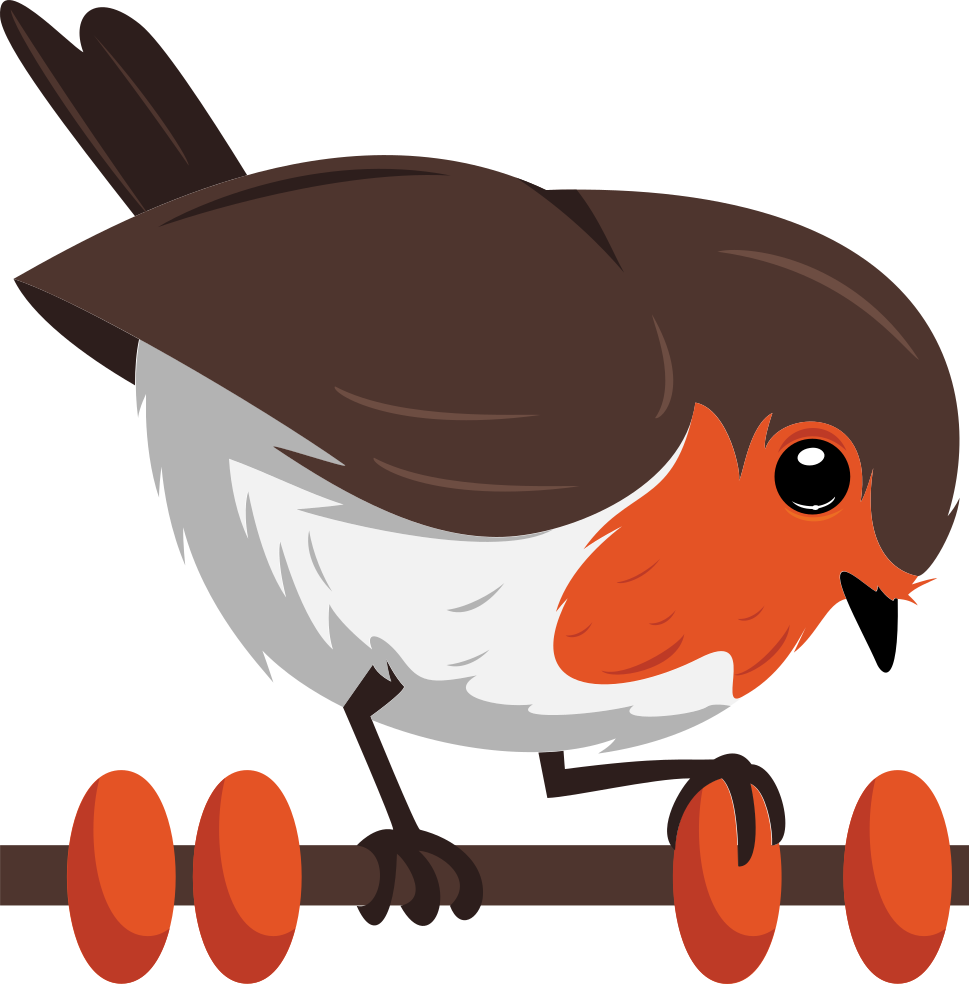10 Sep 2024
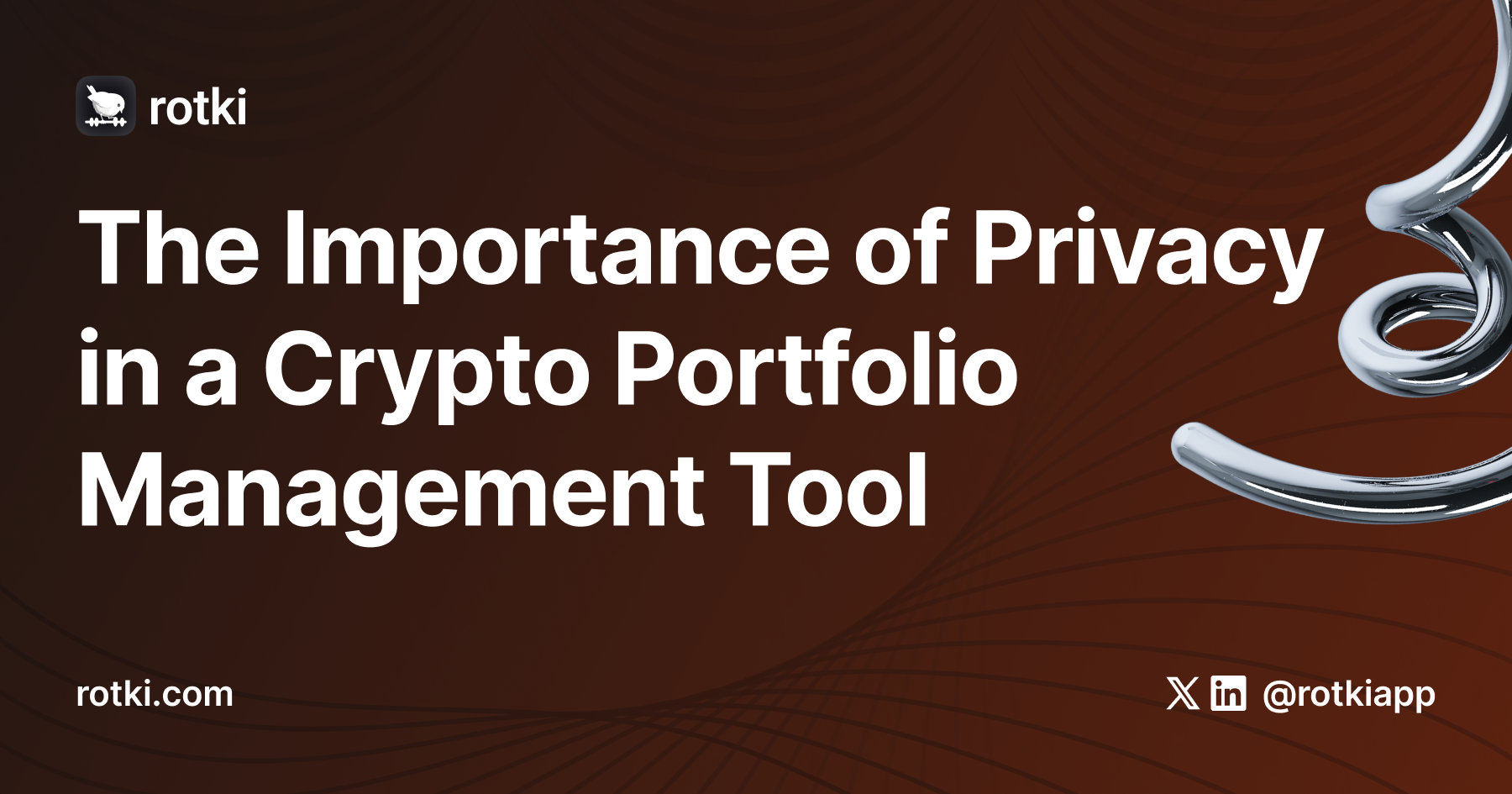
In a world where digital footprints are as valuable as gold, privacy has become a precious commodity - especially in the crypto space. Managing your crypto portfolio involves sensitive financial information, and the idea that this data could be exposed to third parties is unsettling. As cryptocurrency adoption grows, so does the need for privacy-conscious tools that protect user data.
Privacy in a crypto portfolio management tool is not just a feature - it’s a necessity. Unlike traditional finance, where bank statements and investment portfolios are somewhat shielded by regulatory protections and financial institutions’ infrastructure, cryptocurrencies’ decentralized nature often means your financial activities can be more exposed than you’d like. Every transaction on a blockchain is recorded publicly, and visible to anyone who knows where to look. Without proper privacy measures, your portfolio could be vulnerable to unwanted scrutiny, or worse, targeted attacks on your person if you are deemed to be a high net-worth individual just by your on-chain footprint.
In the crypto world, your financial information is directly tied to your wallet addresses, and if these addresses are linked to your identity, your entire portfolio can be reconstructed. This transparency, while beneficial for organizations such as governments, is not something an individual should have to face. Nobody has read access to all your bank’s transactions. With crypto they do and that can lead to risks such as hacking, phishing attempts, or even extortion and physical assault. That’s why crypto users must carefully consider how they manage and protect their portfolio data.
A good portfolio management tool should prioritize your privacy by ensuring your data remains fully controlled by you, and you alone. This means no cloud storage of sensitive information, no sharing of your financial activities with third parties, and strong encryption to keep your data safe from breaches. However, almost every portfolio management tool is a cloud-based web app, leaving its users vulnerable to data leaks or breaches that could compromise their financial security.
This is where rotki stands out. rotki is an open-source, privacy-focused portfolio management tool that puts the user in control of their data. Unlike many other platforms, rotki ensures that all your data stays local, on your device. This fundamental approach to privacy means that none of your financial information is stored on external servers, and you’re not dependent on third parties to protect your data. With rotki, your crypto holdings, transaction history, and portfolio performance reports remain entirely within your control.
The importance of this cannot be overstated. By keeping all data local, rotki eliminates the risks associated with cloud storage and third-party servers. Cloud-based portfolio management tools often claim to offer convenience, but that convenience comes at the cost of surrendering control over your data. Even the most secure cloud platforms can be vulnerable to hacking, leaks, or even simple human error. What’s more, centralized services can be compelled to share data with government authorities, regulators, or other third parties.
rotki’s commitment to privacy extends beyond just local data storage. The platform is open source, which means that its code is publicly available for anyone to inspect. This level of transparency is crucial in a world where closed systems often leave users in the dark about how their data is being handled. With open-source software, you can trust that there are no hidden backdoors or secret data-sharing agreements. If you’re technically inclined, you can even contribute to the development of the platform, ensuring it evolves to meet the highest privacy and security standards. Open source also leaves you with a promise. The promise is that no matter what happens to the company you will always be able to use the latest version of the tool. And that even if the team stops developing it, anyone else is free to pick it up and continue working on it.
What’s more? rotki supports a wide range of crypto assets, CEX, and DeFi investments. This means you can manage your entire portfolio in one place while maintaining full control over your data. The platform also offers powerful reporting tools that allow you to track your investments, and analyze your portfolio’s performance - all without ever compromising your privacy.
Privacy and security are important to the essence of cryptocurrency. The whole point of decentralized finance is to take control away from centralized institutions and give it back to the individual. However, this empowerment comes with responsibility. It’s up to each user to safeguard their assets and their data. rotki helps to make that responsibility a little easier by providing a comprehensive, open-source portfolio management tool that keeps your financial data private, secure, and under your full control, without relying on third-party services or exposing sensitive information.
In an age where data breaches and privacy invasions are increasingly common, having a portfolio management tool that respects and protects your privacy isn’t just important - it’s essential.
If you want more info on rotki:
30 Aug 2024
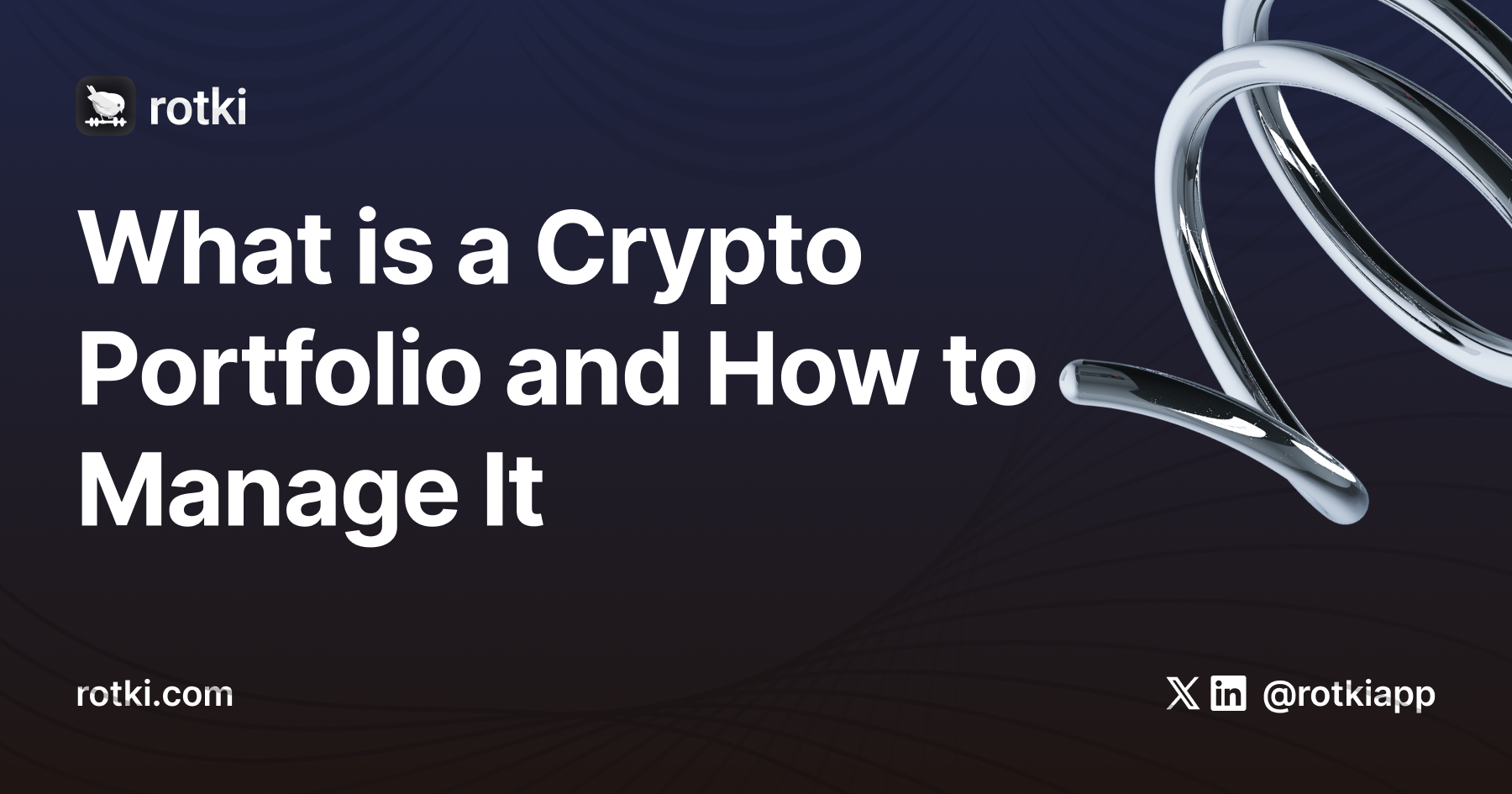
As the world of cryptocurrency continues to expand, more investors are venturing into digital assets, building what’s known as a crypto portfolio.
Like a traditional investment portfolio that might include stocks, bonds, and real estate, a crypto portfolio is a collection of various cryptocurrencies and blockchain-based assets owned by an individual or institution.
What is a Crypto Portfolio?
A crypto portfolio represents your entire digital asset holdings. It includes a range of different types of assets you currently hold. Understanding the components of a crypto portfolio is essential for managing risk, tracking performance, and making informed investment decisions.
Key Components of a Crypto Portfolio
- Cryptocurrencies: The foundation of any crypto portfolio, cryptocurrencies are digital or virtual currencies that use cryptography for security. The most well-known examples are Bitcoin (BTC) and Ethereum (ETH), but there are thousands of others.
- Tokens: Tokens are a type of cryptocurrency built on top of an existing blockchain, typically representing more than just currency. They can grant access to a service, represent ownership in a project, or even act as a form of voting rights in decentralized governance. For instance, ERC-20 tokens are built on the Ethereum blockchain.
- Stablecoins: These are cryptocurrencies pegged to the value of a stable asset, such as the US dollar. Stablecoins like Tether (USDT) and USD Coin (USDC) are designed to minimize volatility, making them useful for transactions and as a store of value during periods of market instability.
- NFTs (Non-Fungible Tokens): NFTs are unique digital assets that represent ownership of specific items or content, such as digital art, music, or virtual real estate. Unlike traditional cryptocurrencies, which are fungible and can be exchanged on a one-to-one basis, NFTs are distinct and often used in the context of collectibles and digital ownership.
- DeFi (Decentralized Finance) Assets: DeFi assets are part of a rapidly growing sector in the crypto world that aims to replicate traditional financial services — like lending, borrowing, and trading — without intermediaries such as banks. These assets often provide opportunities for earning interest or participating in governance, and they play a significant role in the portfolios of investors looking to engage in more complex financial strategies.
- Staking and Yield Farming Assets: Staking involves holding a cryptocurrency in a wallet to support the operations of a blockchain network, such as transaction validation, in exchange for rewards. Yield farming, on the other hand, involves lending or borrowing assets through decentralized finance protocols to earn returns. Both practices are popular among investors looking to generate passive income from their crypto holdings.
The Importance of Managing a Crypto Portfolio
Managing a crypto portfolio effectively is crucial for several reasons:
- Diversification: Just as with traditional investments, diversification is key to managing risk in a crypto portfolio. By holding a variety of assets, investors can reduce their exposure to the volatility of any single cryptocurrency or protocol. This approach helps to minimize potential losses and stabilize returns over time.
- Tracking Performance: Keeping track of the performance of each asset in your portfolio is essential. Regularly monitoring your portfolio allows you to see how each investment is performing, helping you decide when to buy, sell, or hold. This continuous oversight is crucial in the fast-moving crypto markets, where prices can fluctuate rapidly.
- Risk Management: Different assets in a crypto portfolio come with varying levels of risk. A well-balanced portfolio takes this into account, blending high-risk, high-reward investments with more stable assets like stablecoins. Managing risk helps protect against significant losses while still offering growth opportunities. There are multiple types of risk. There is volatility risk but also smart contract or protocol risk. With hacks being frequent in crypto an investor needs to take care of both.
- PnL Analysis: Generate information that can make it easier to understand how much profit or loss you have had in a given period. These can also be used for taxes.
Given the complexity of managing a diverse set of digital assets, many investors turn to portfolio management tools. These platforms offer a range of features, including:
- Real-Time Tracking: Get up-to-the-minute updates on the value of your holdings.
- Comprehensive Dashboards: View all your assets in one place, even if they’re spread across multiple exchanges and wallets.
- Analytics and Insights: Access detailed reports on portfolio performance, including profits, losses, and historical data.
One example of such a tool is rotki, an open-source, privacy-focused portfolio management platform. Unlike many other tools that rely on cloud storage, rotki operates locally on your device, ensuring that your financial data remains private and under your control.
It integrates with various exchanges, wallets, blockchains, and protocols, making it easier to track a wide range of assets and stay on top of your portfolio.
Try it out here — rotki.com
Key Takeaway
It is normal for non-investors to assume that a portfolio is just another complex term used in financial markets. In truth, a crypto portfolio is simply a collection of digital currencies that contains assets that, if managed effectively, can lead to significant financial growth. Whether you’re a seasoned investor or new to digital assets, effective portfolio management, performance tracking, and risk management will be key to your success in the crypto space.
If you want more info on rotki:
31 Dec 2022
Introduction
rotki is the opensource portfolio tracker and accounting tool that protects your privacy. It started in 2017 as a small CLI tool to cater for my own portfolio tracking and tax reporting needs as a technical crypto user in Germany. Since then it has grown a lot and into its own project with thousands of users, 100 code contributors and a dedicated and passionate userbase.
Year in review
This post is a look back in the year that passed, recounting what we did at rotki since the start of 2022. We are gonna look at both what happened in the app and the code, but also how did the team itself grow and evolve. I (Lefteris), am writing here using the first person as this is my personal outlook on how rotki grew this year.
January
We released two rotki patch releases. 1.23.1 and 1.23.2
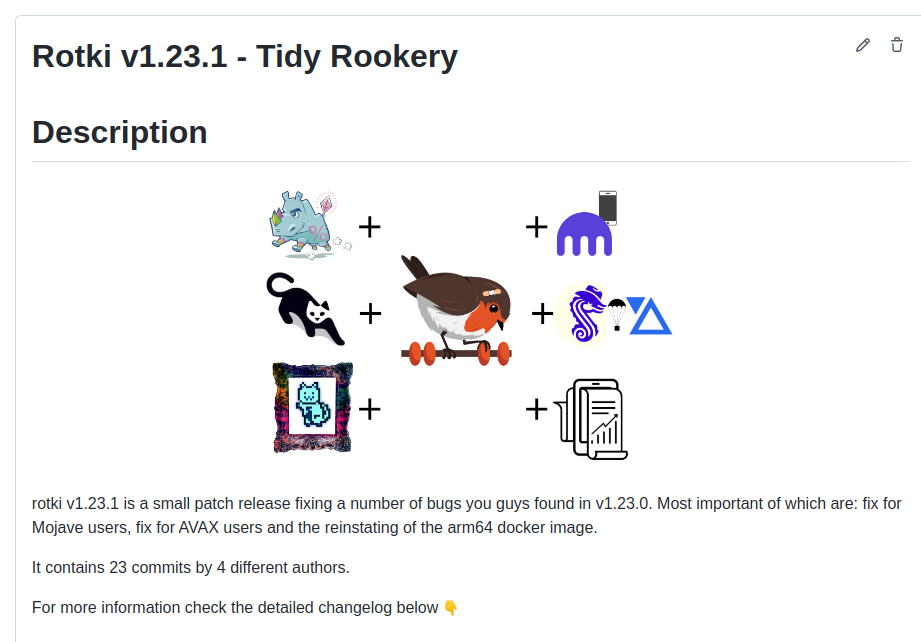
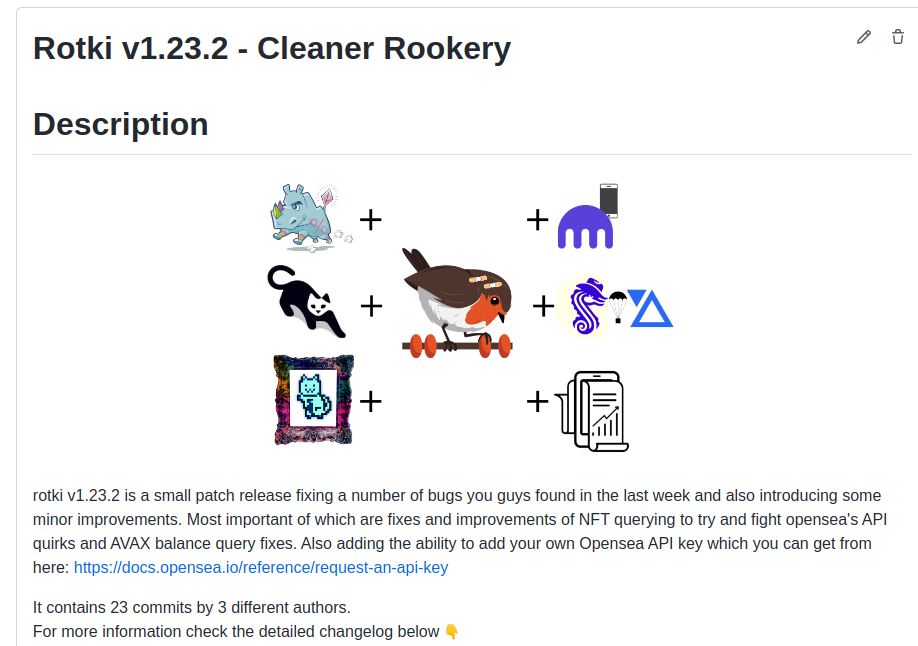
Also Luki Centuri, the frontend developer who had just joined us at the end of the previous year completed his first month. Our team was finally more than just 3 people!
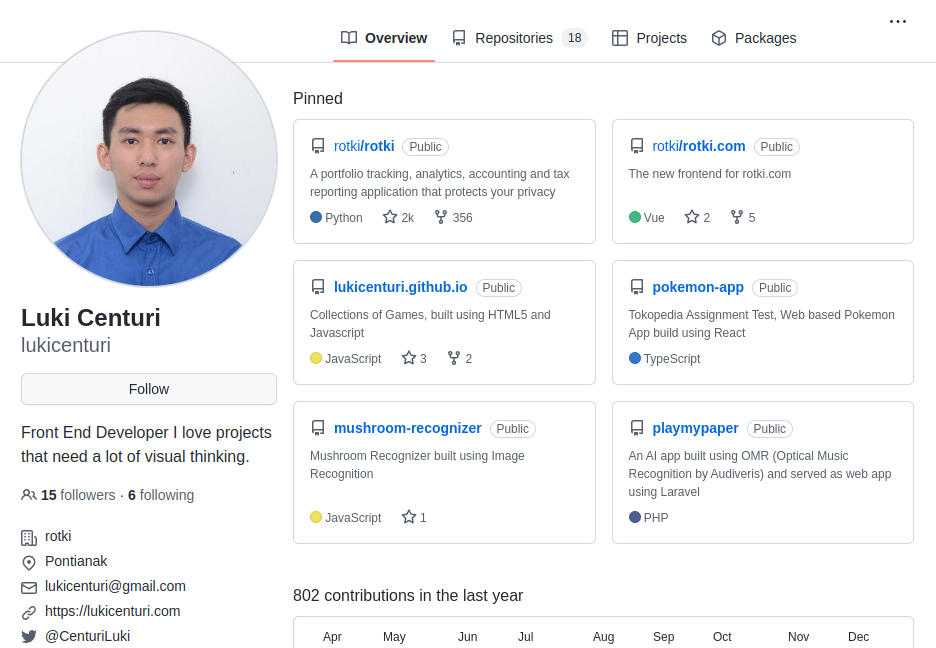
February
In February we released another patch release, 1.23.3
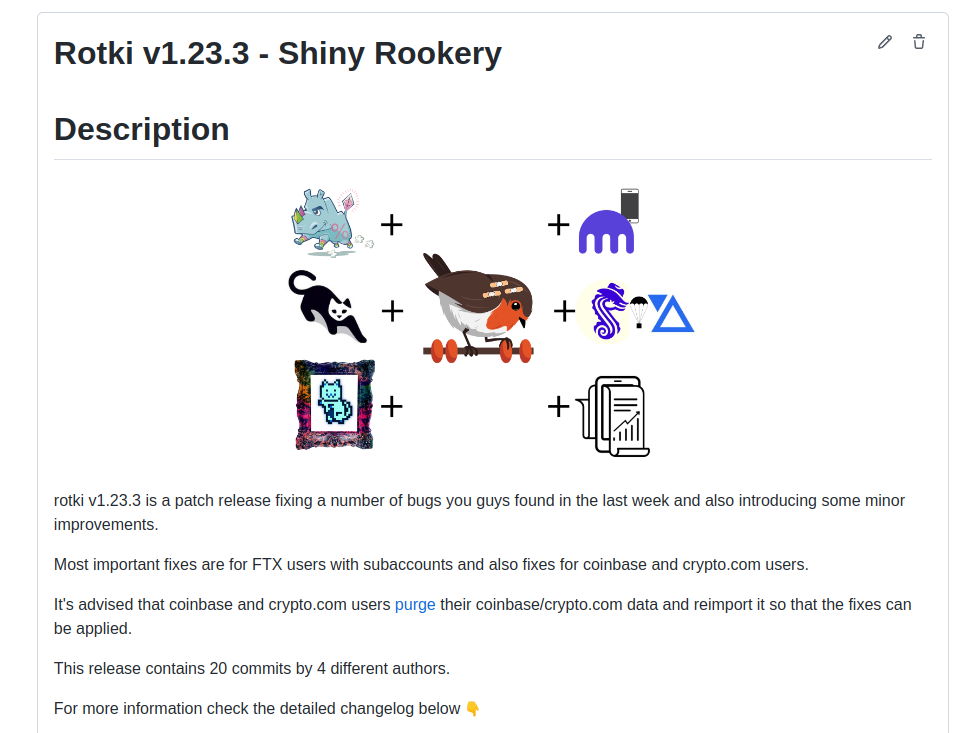
And our team kept working dilligently toward making 1.24.0.
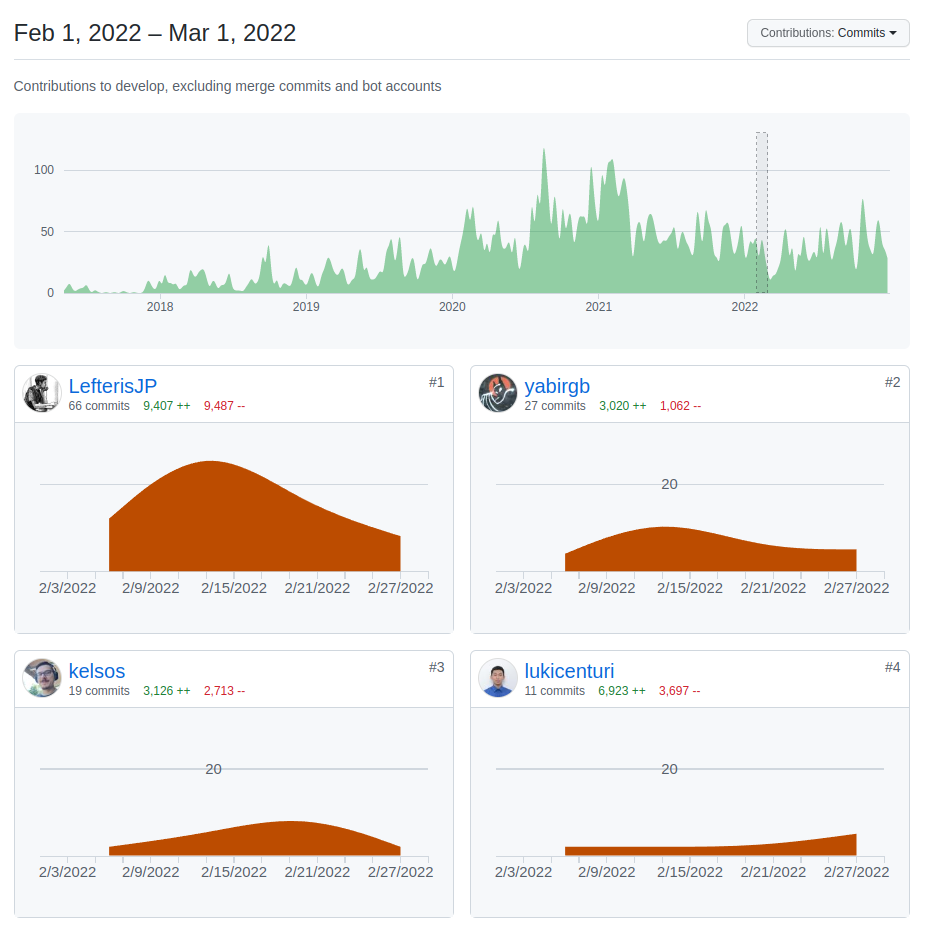
March
In March we released yet another patch release, 1.23.4, making 1.23.xx release series the longest patch release series of 2022.
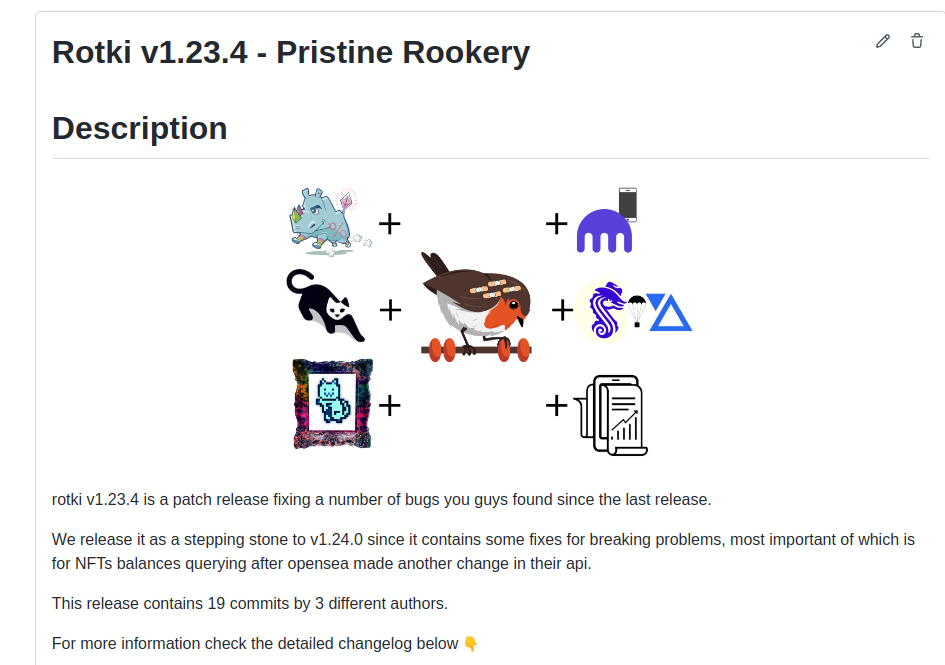
Also we had our first non-tech hire! Celina joined our team.
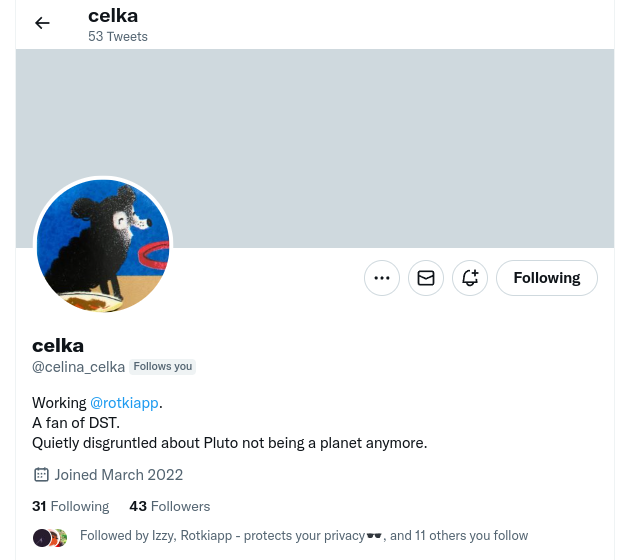
Celina has handled all non-developer related tasks such as HR, accounting, all organizational matters and even a bit of communications!
April
April was a really interesting month as we had two new hires who were onboarded to the backend team.
The first was Isaac.
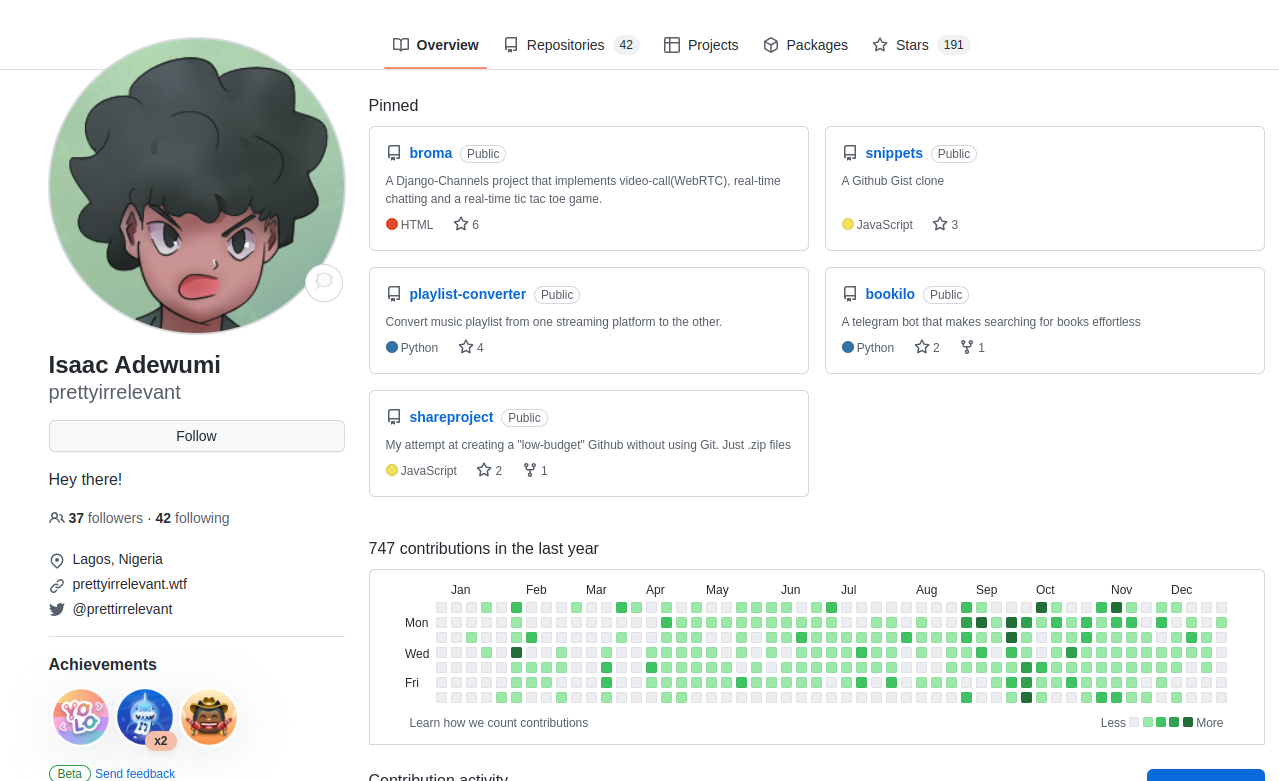
Isaac is a developer from Nigeria who joined the backend team and has so far helped us with various issues on the backend.
The second was Alexey.
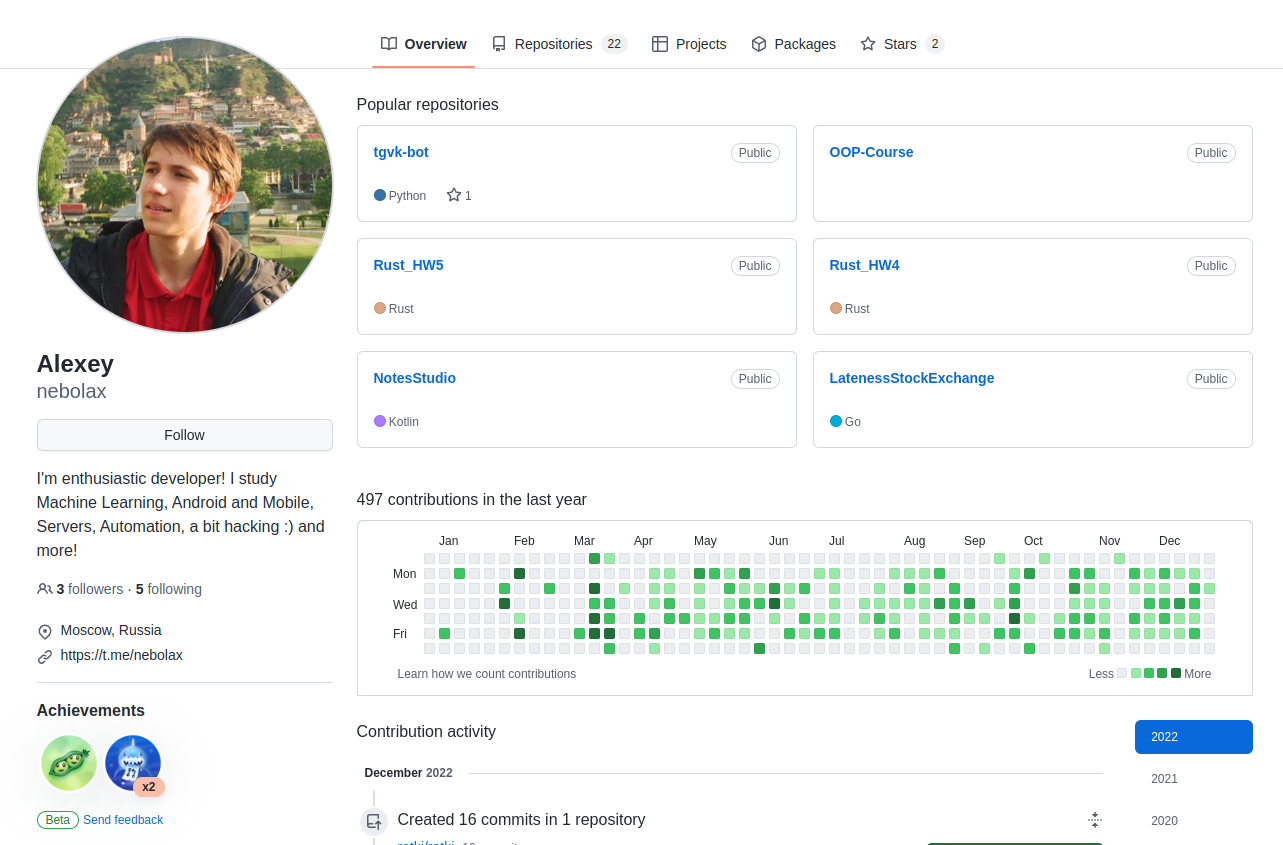
Alexey was our youngest hire, an enthusiastic 18yo developer from Russia who has since helped us with various rotki backend matters.
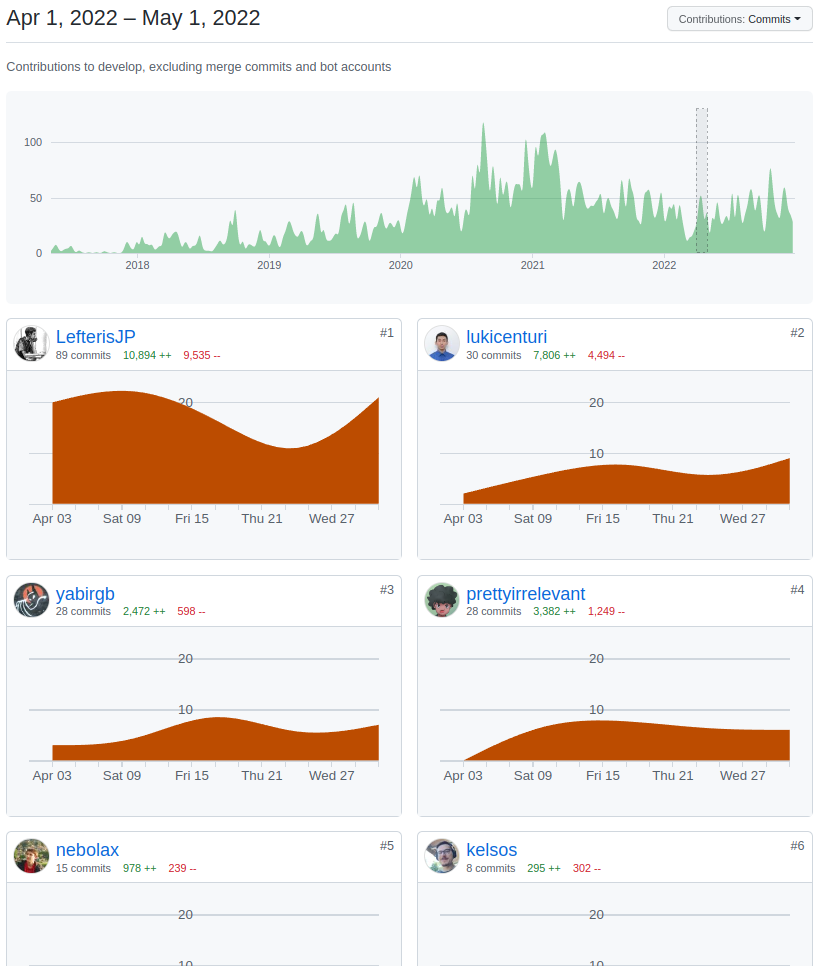
And the team kept on grinding towards the long awaited 1.24.0 release while at the same time trying to onboard the new hires.
May
At the end of May we finally managed to release v1.24.0.
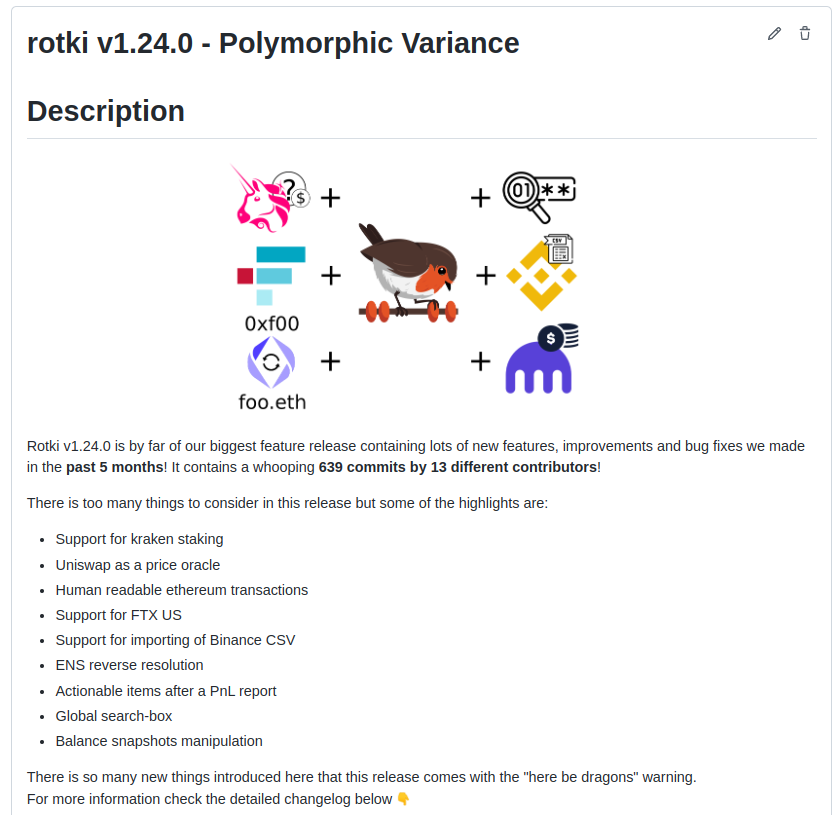
That was the biggest release we have ever made (and I hope to not do it again) and contained among others:
- The start of the ethereum transactions decoding
- Kraken staking
- Support for ftx.us
- ens reverse resolution
- ability to manipulate balance snapshots
- uniswap price oracle
June
In June we released a quick patch release to fix bugs found in 1.24.0
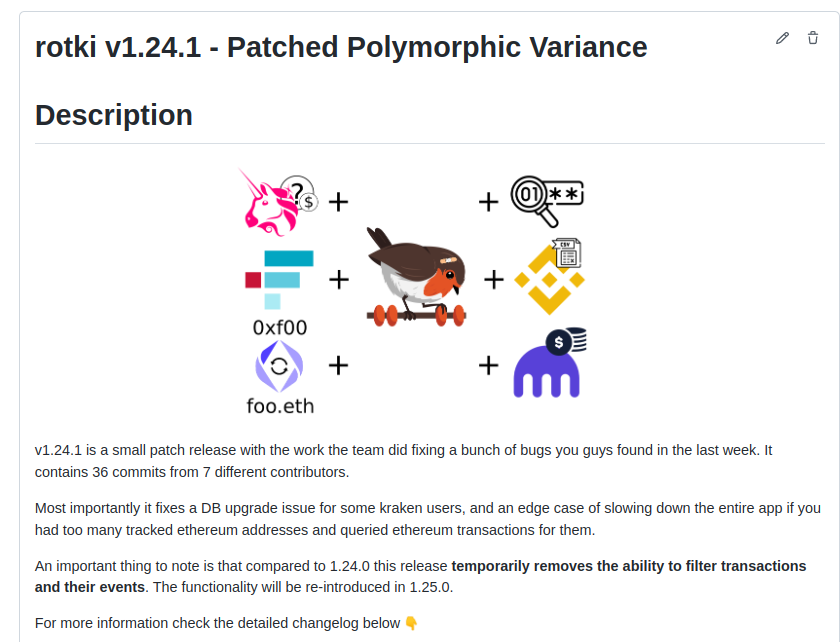
And we also kept grinding and coding towards 1.25.0 and trying to learn how to work as a bigger backend team now that we have had Isaac and Alexey.
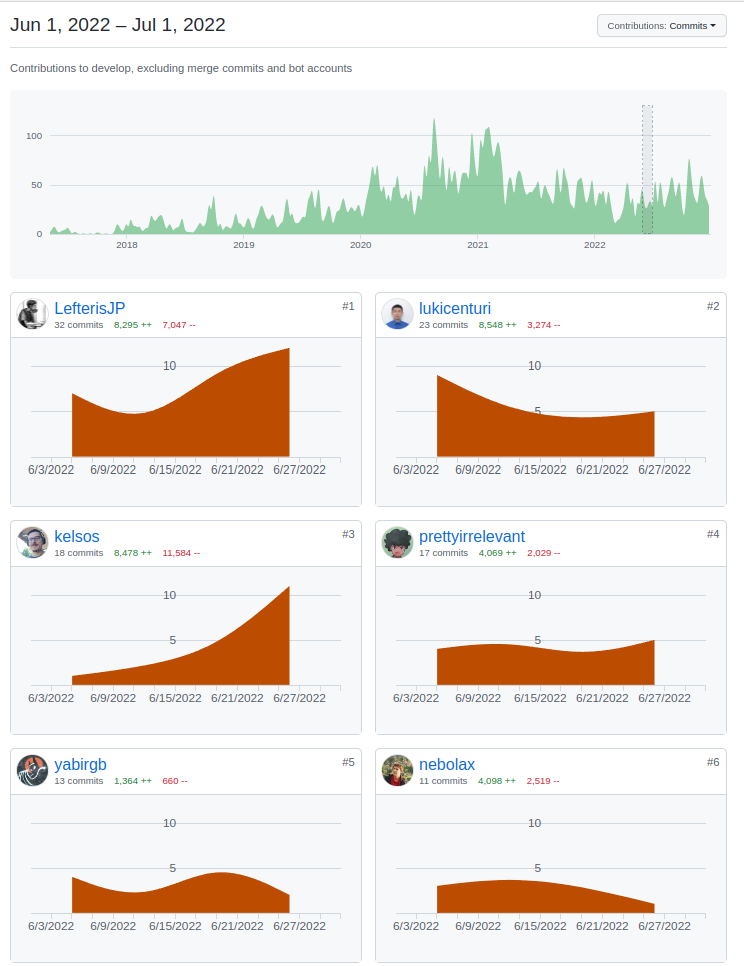
July
July was quite a busy month!
EthBarcelona
It started with a trip to Barcelona for EthBarcelona where we presented about rotki and the benefits of opensource software.
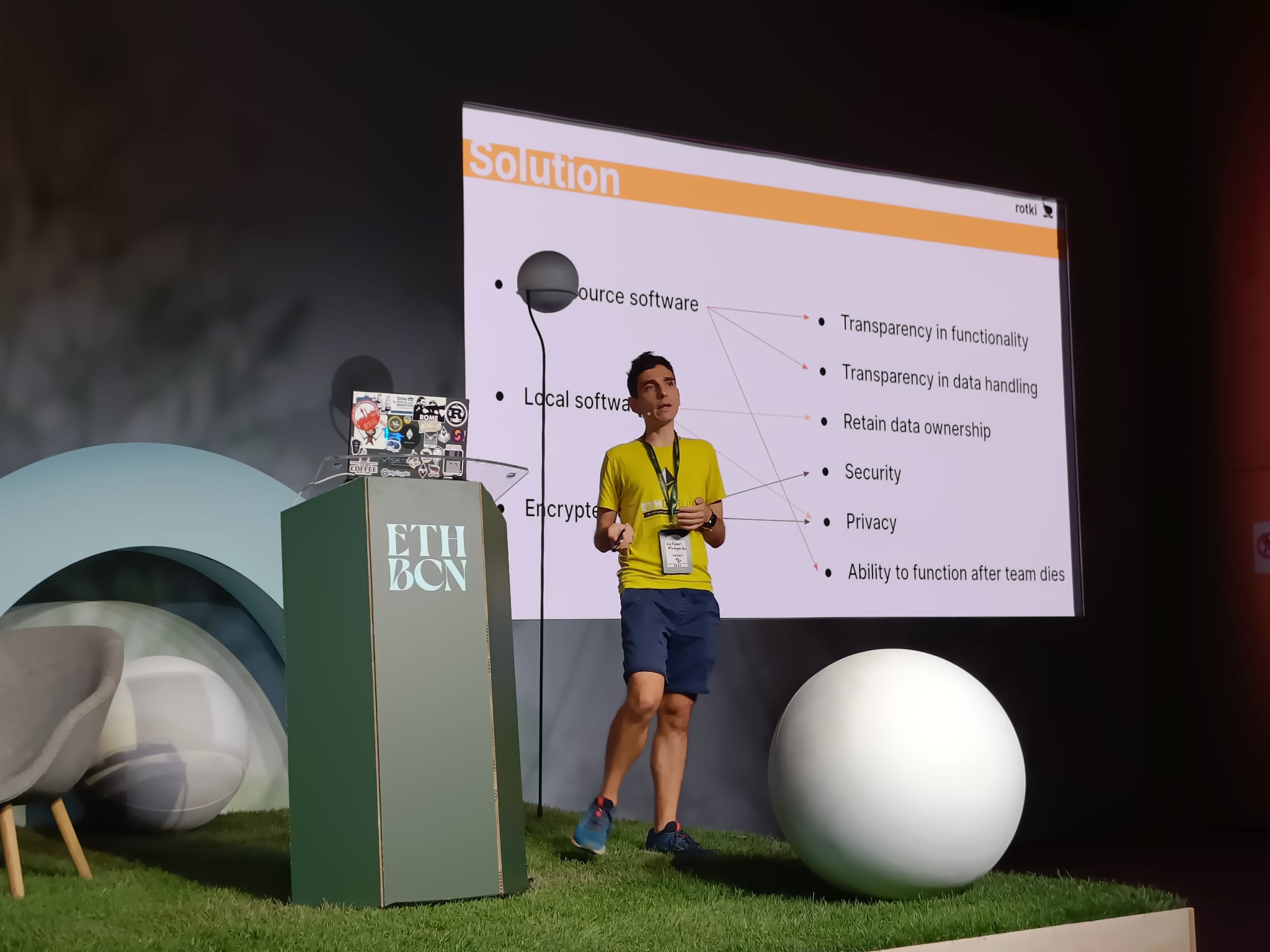
It was a very moving moment for me as it was the first time I met with Yabir in real life.
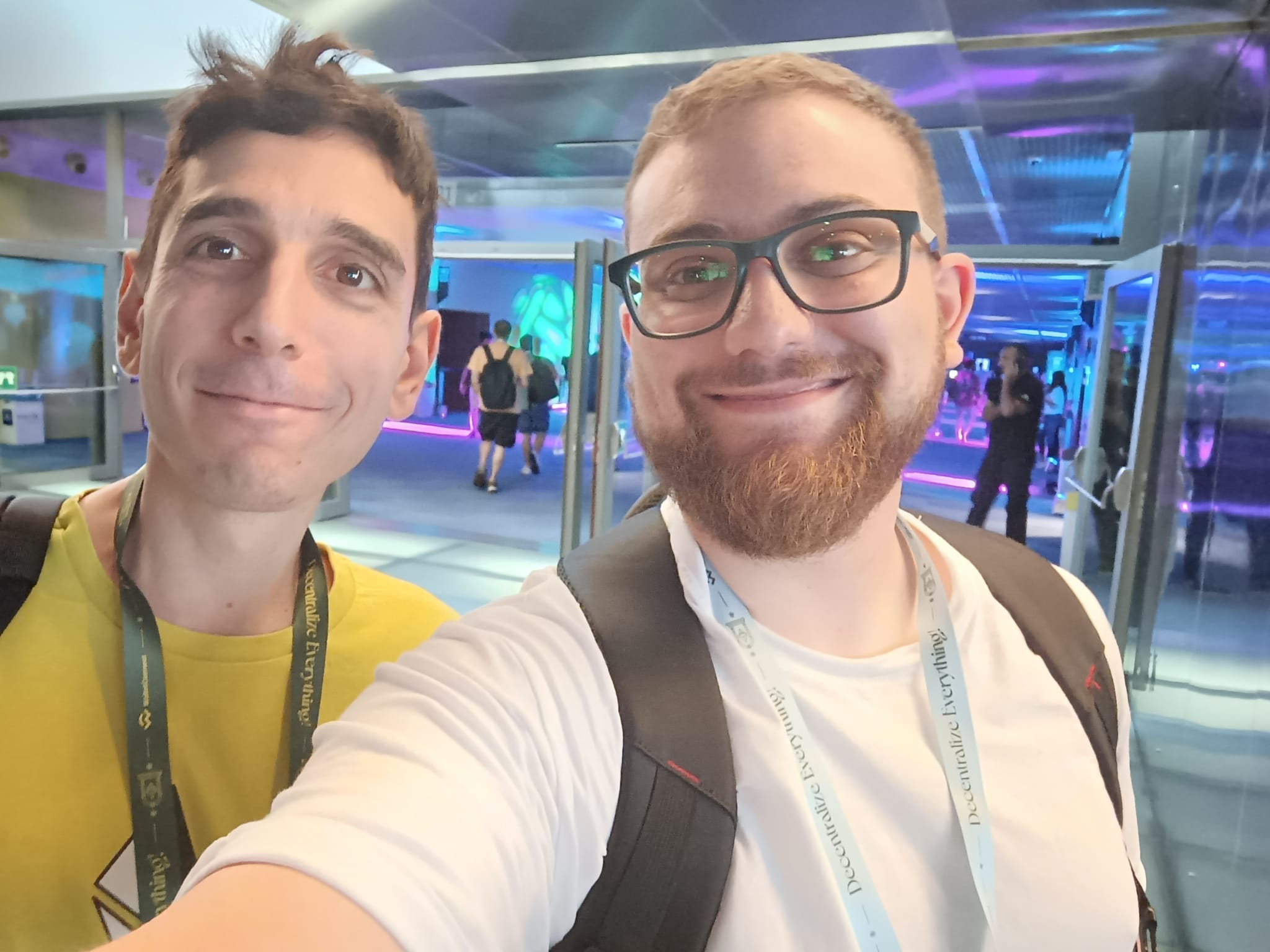
We have been working with Yabir since 2021 and getting to see him in the flesh after one and a half year was amazing.
What’s more we got to meet Viktor (left)!
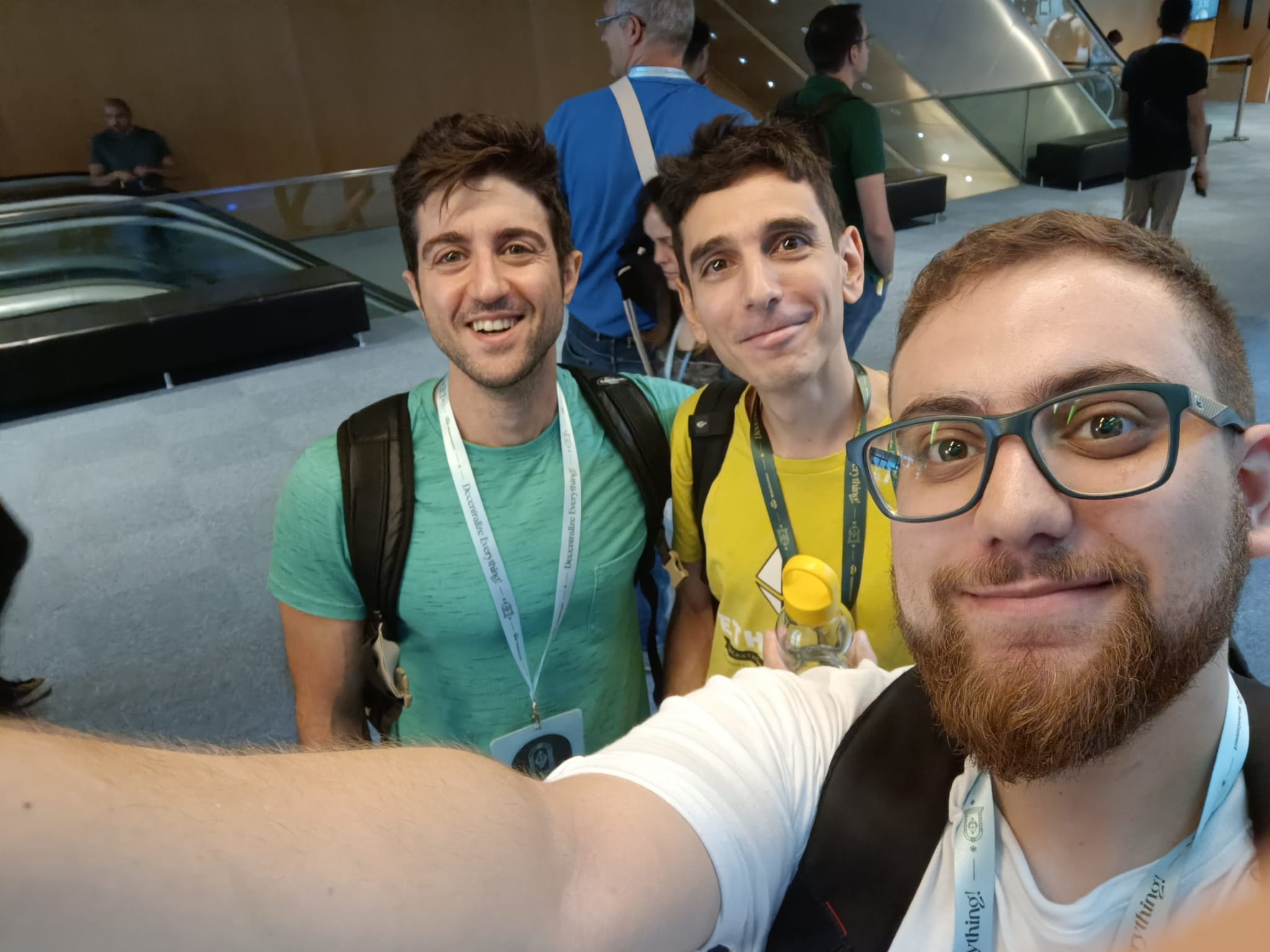
Viktor used to work with rotki for a few months from the end of 2020 until Q2 2021! He is a native of Barcelona and after rotki, he stayed in the crypto field so it was really cool to meet him too in real life!
v1.25.0
After Barcelona we released v1.25.0.
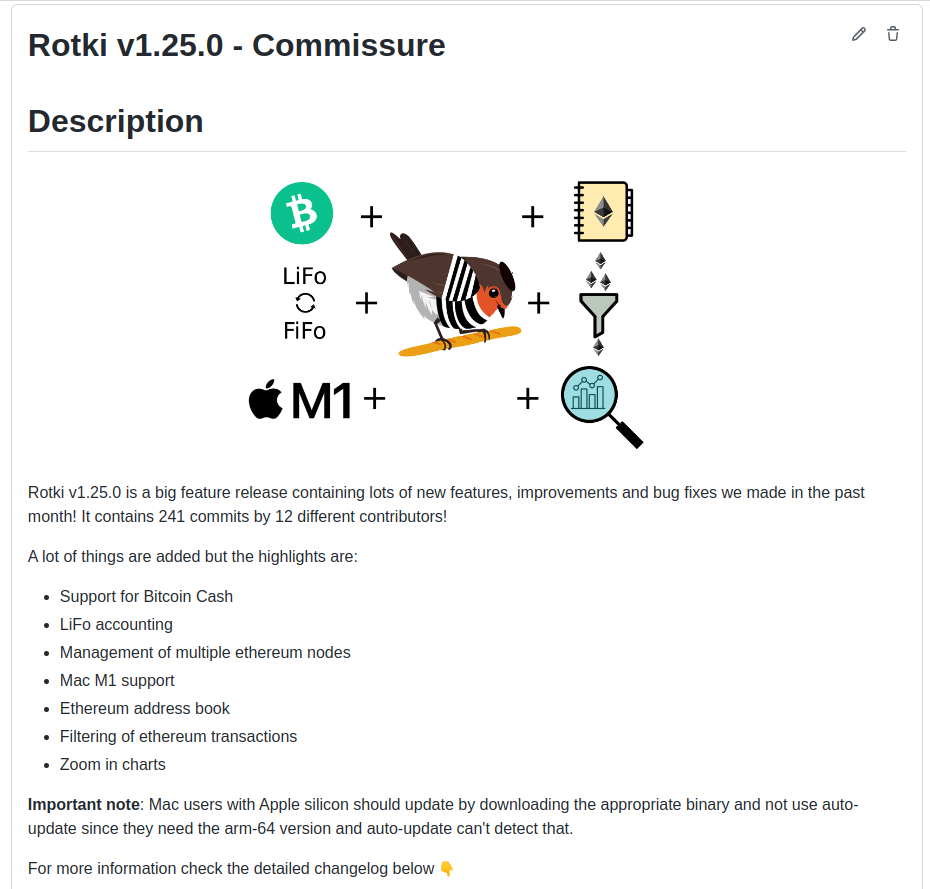
It was a French-themed release as we were also heading to Paris for EthCC.
Among others it contained support for:
- Bitcoin cash
- LiFo accounting
- Management of multiple ethereum nodes
- Mac M1 support
- Ethereum address book
- Filtering of ethereum transactions
- Zoom in charts
EthCC
In July we also travelled to Paris for EthCC where we presented about rotki’s progress and how opensource is a core of what we do.
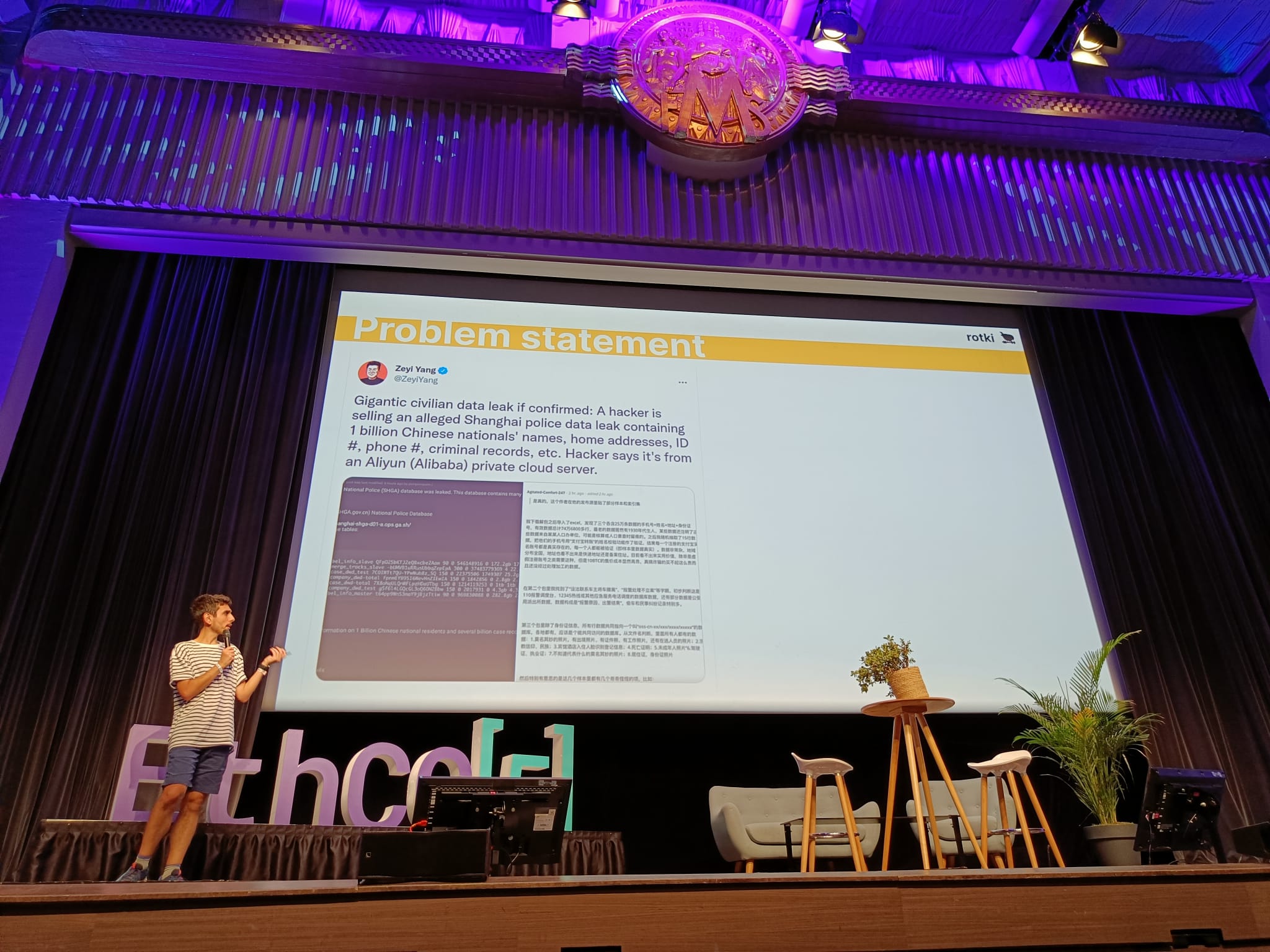
EthCC is a very important conference for us as it is in EthCC 2019 that I first presented about rotki to an audience.
Both Yabir and Kelsos travelled to Paris for EthCC so this was the first time those two managed to meet in person.
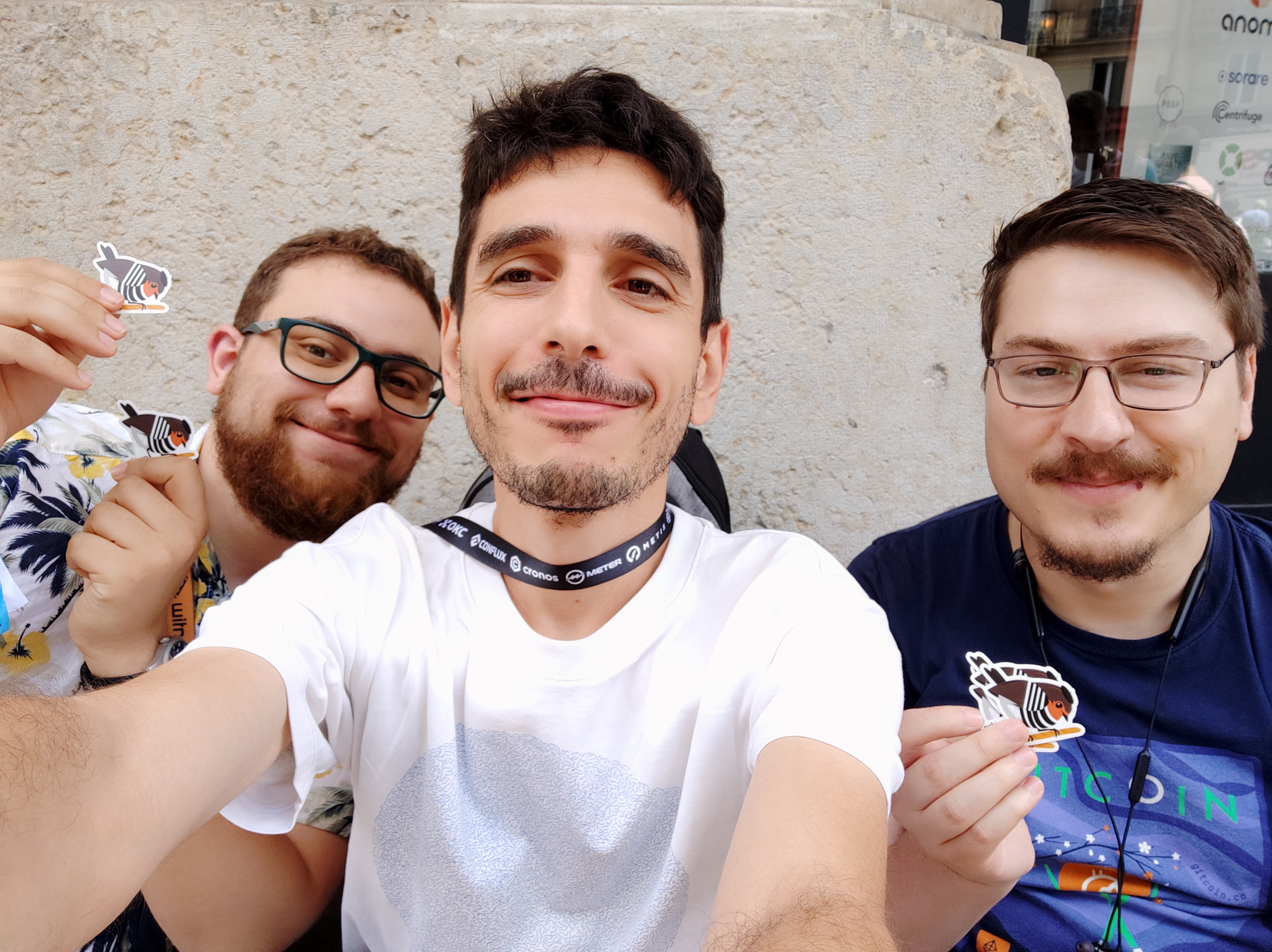
Another really cool meeting in EthCC was meeting with the first user in the wild, jimjim.eth, who used the rotki dappnode package at his home and connected and used it from his mobile phone! rotki mobile was already a reality!
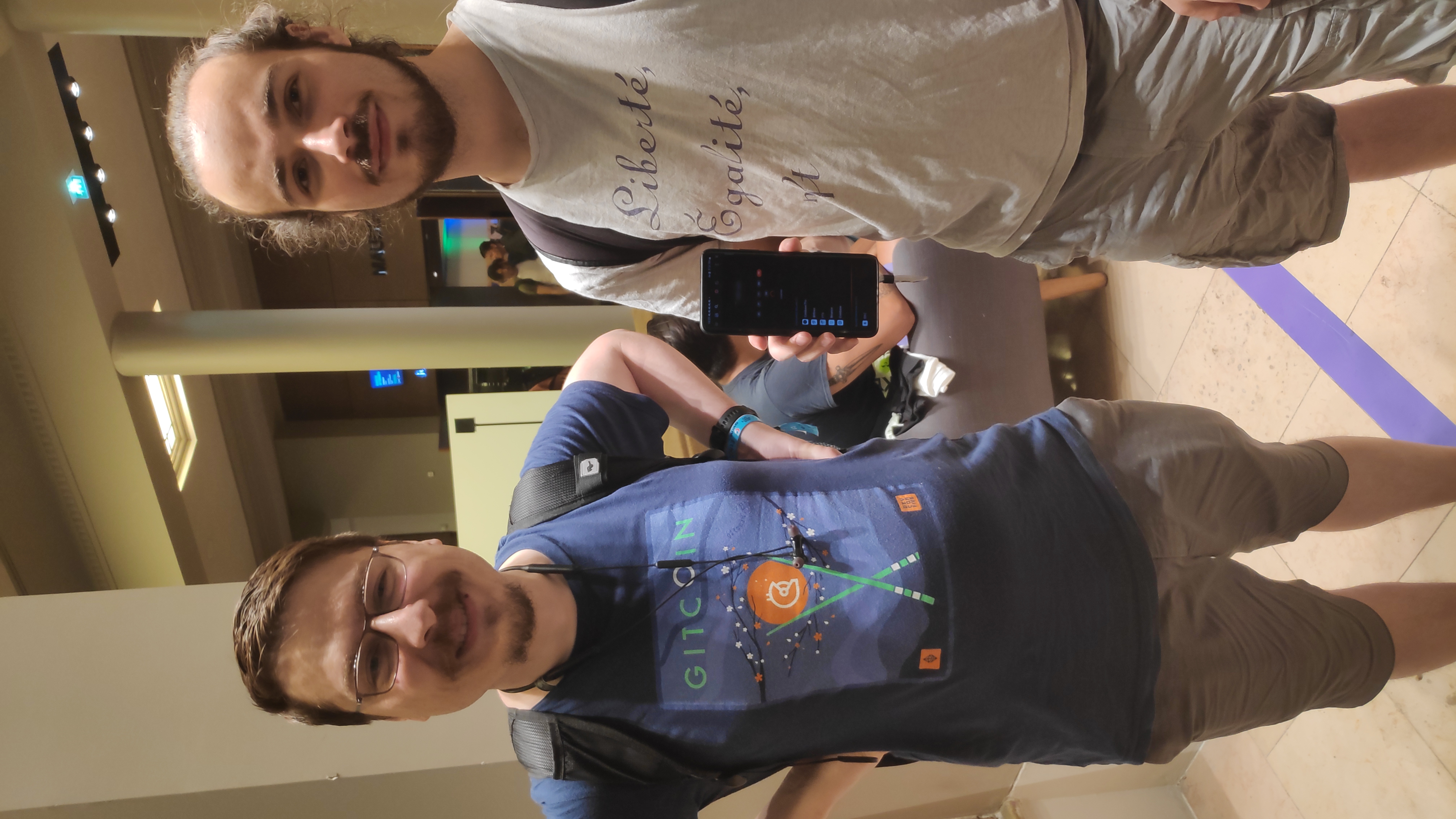
v1.25.1
We closed this very busy month with a patch release, 1.25.1, that fixed bugs our users saw with 1.25.0.
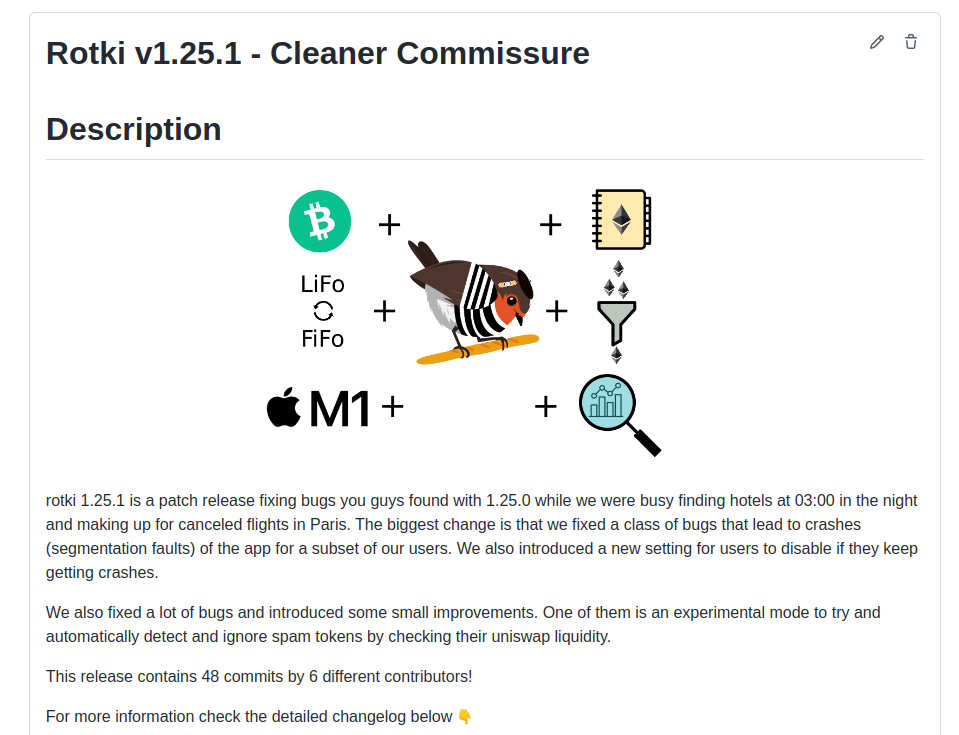
Fun fact is that this release was implemented while we were trying to figure out our hotels and flights. That trip to Paris was cursed. Both flights to/from Paris were delayed/canceled and our hotels/airbnbs all presented problems :D
August
In August, recovering from the busy month of July, we released 1.25.2 that fixed yet more issues and added improvements on top of 1.25.1.
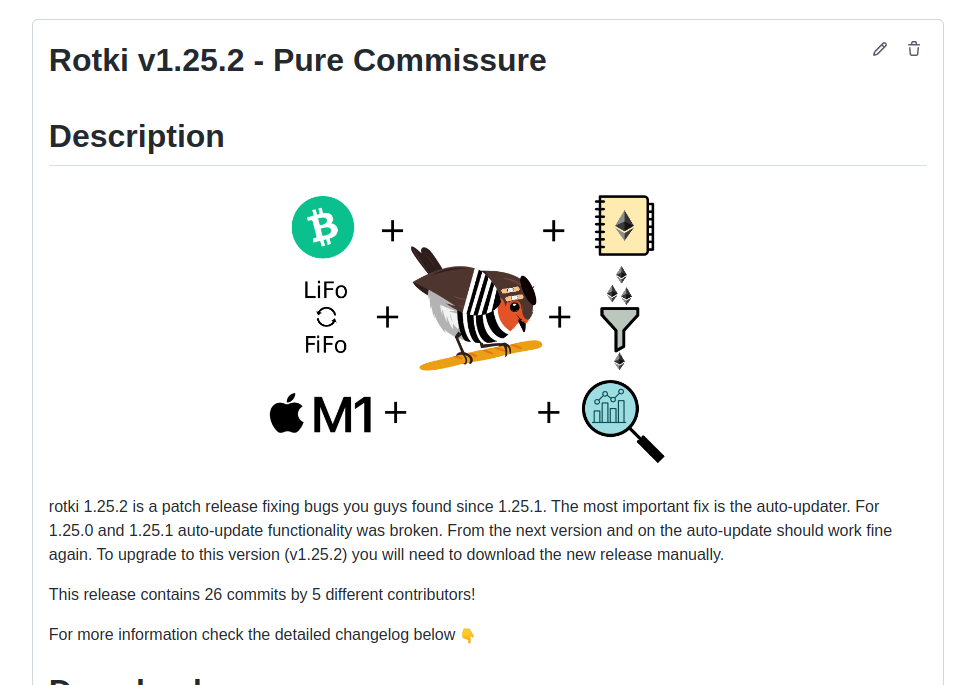
What’s more the team kept working dilligently towards our next big milestone, 1.26.0.
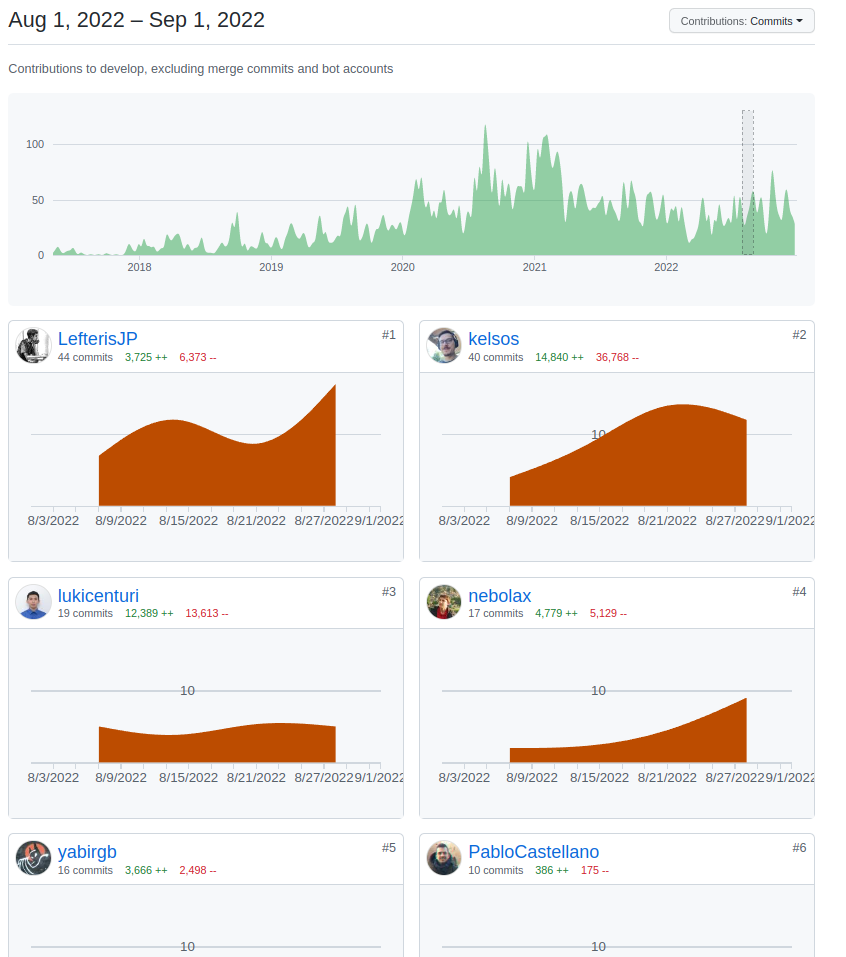
September
September was also a busy month! Most of the team travelled to Berlin, for the Berlin blokchain week.
Dappcon
We presented at dappcon about rotki and what its strengths are but also what the challenges with making an opensource application are, especially related to funding.
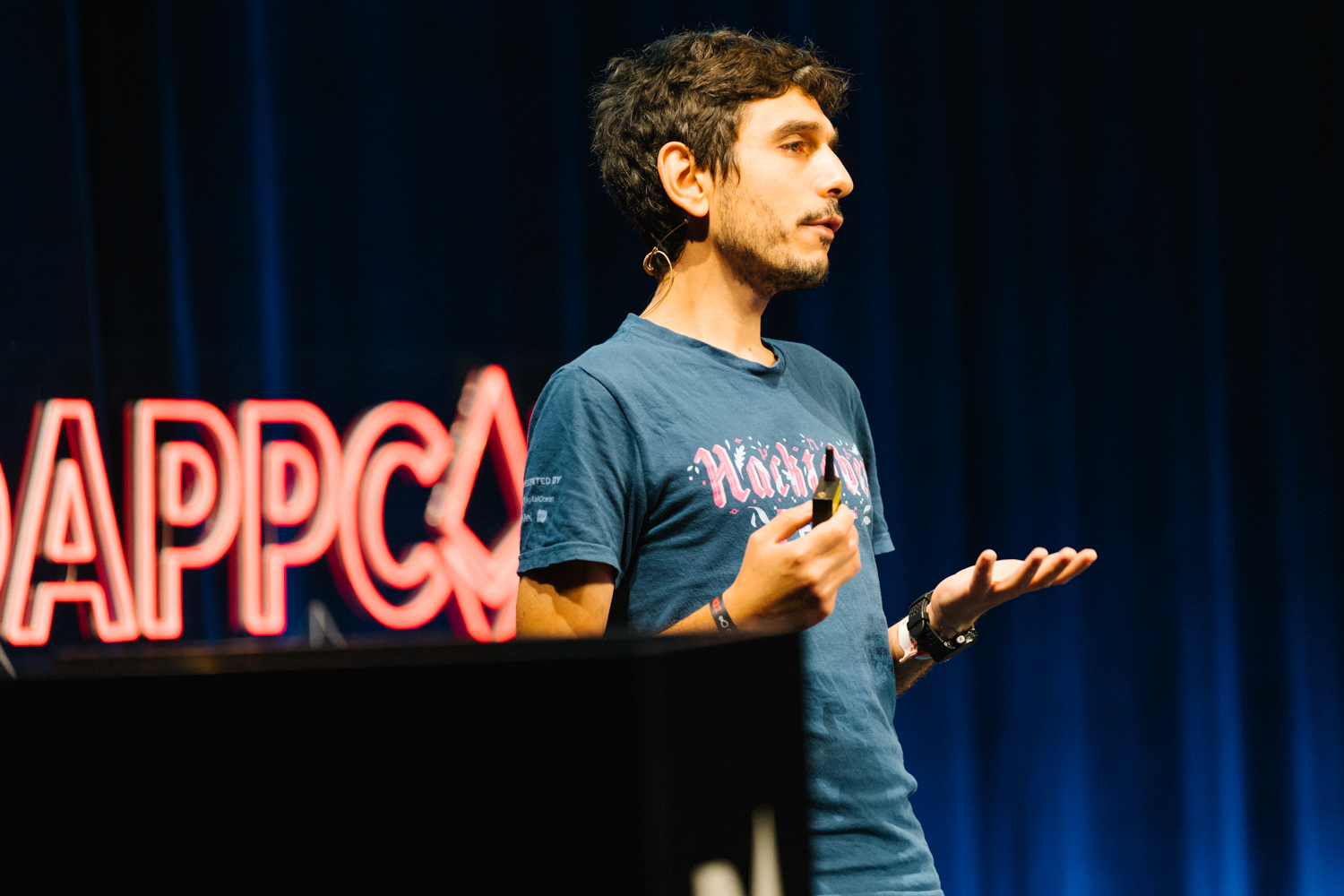
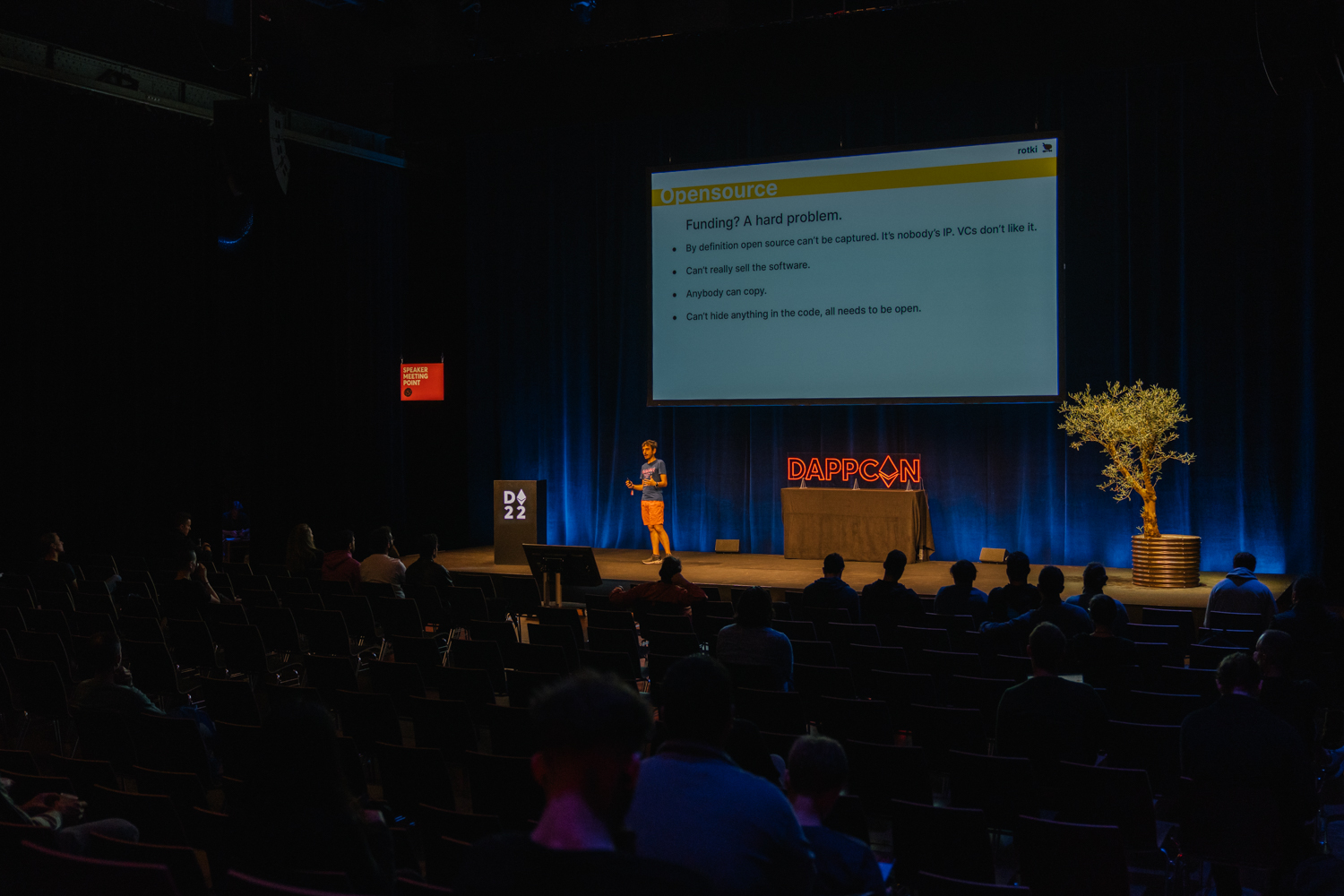
Dappcon was an amazing experience for us as it was the very first time the biggest part of the team was in the same place. We met Alexey in real life for the first time after working together for almost 5 months!
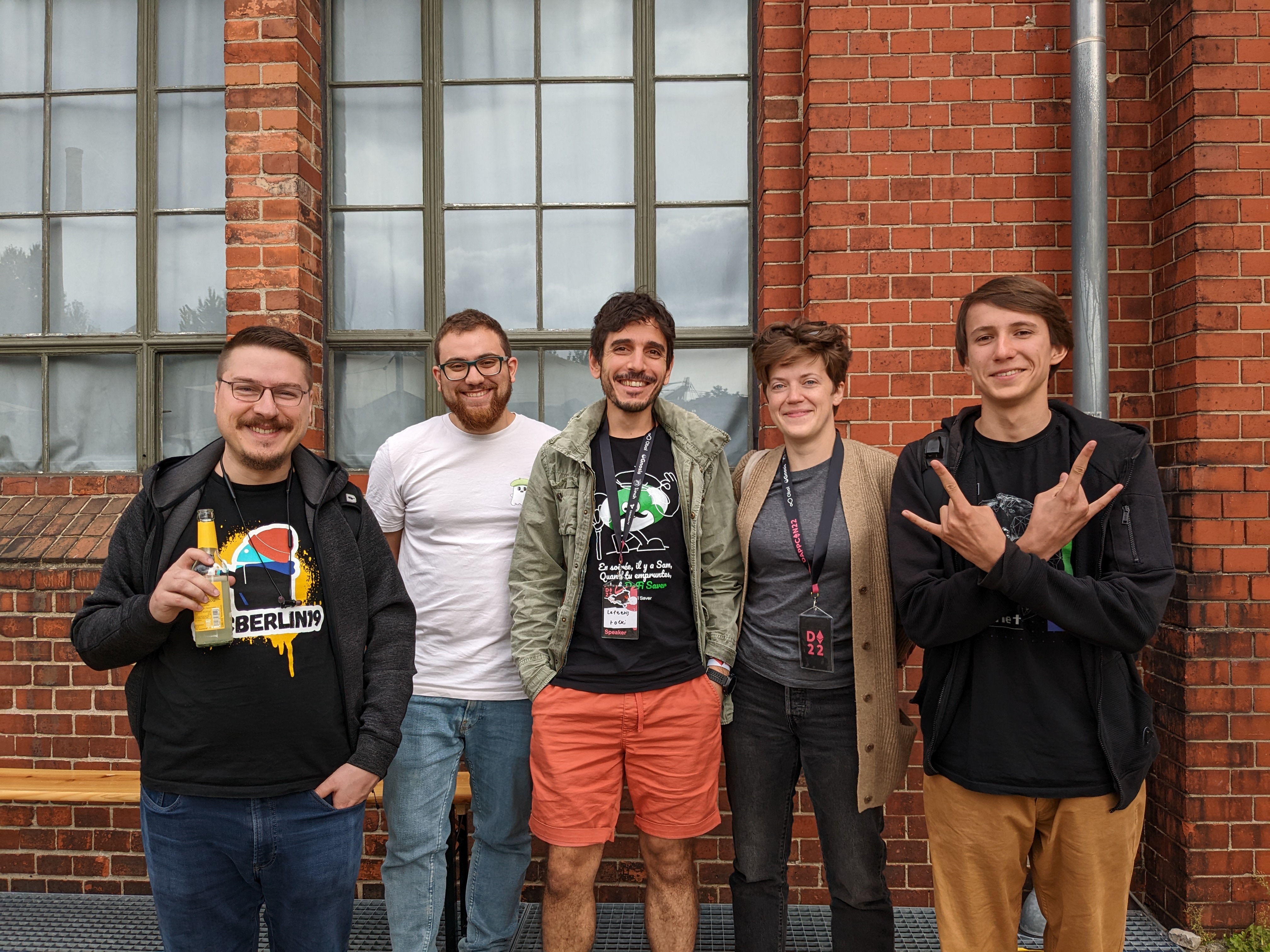
From left to right: Kelsos, Yabir, Lefteris, Celina, Alexey.
EthBerlin
We also participated in ETHBerlin 3!
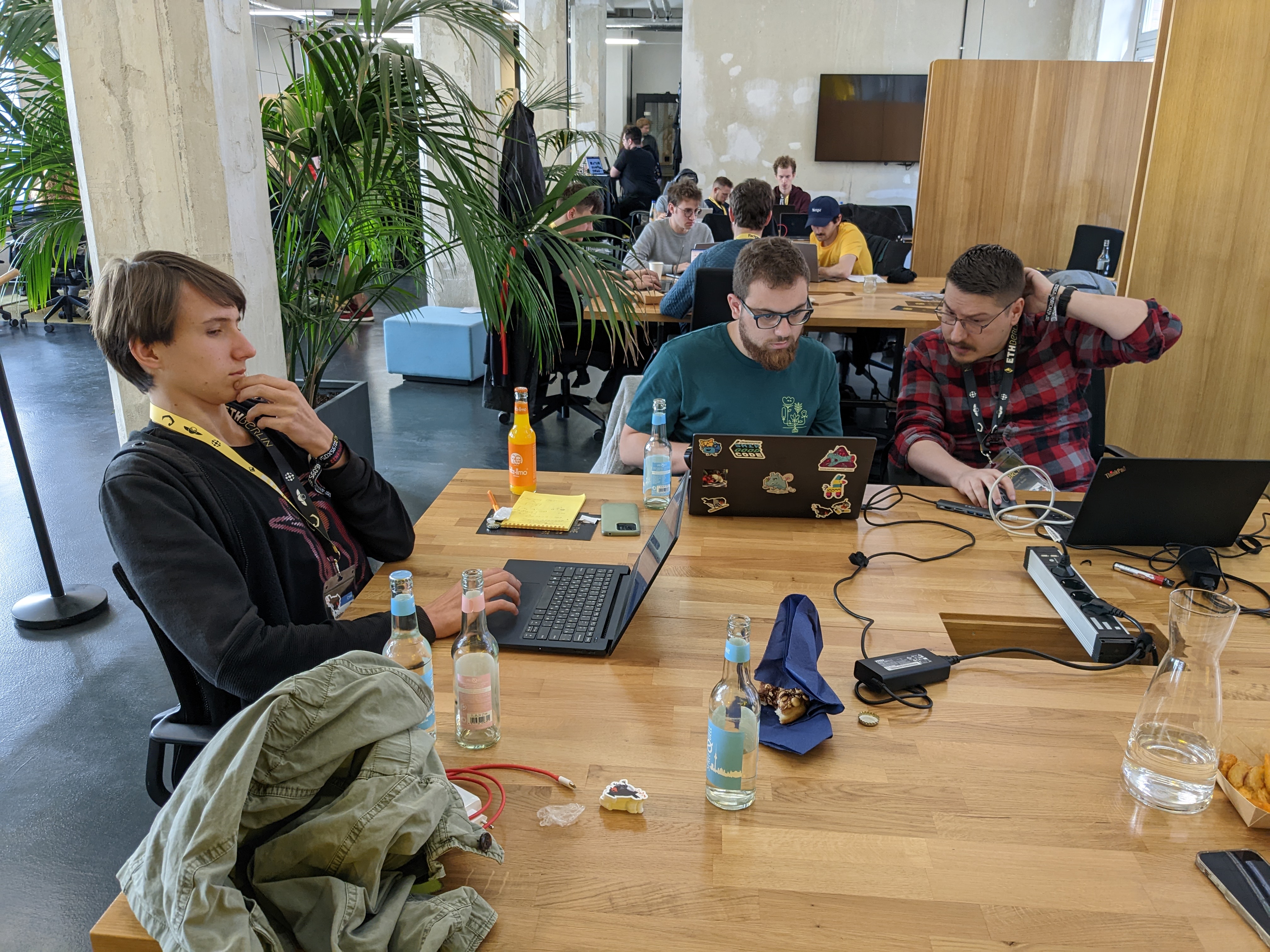
We hacked on various rotki related things and had some workshops.
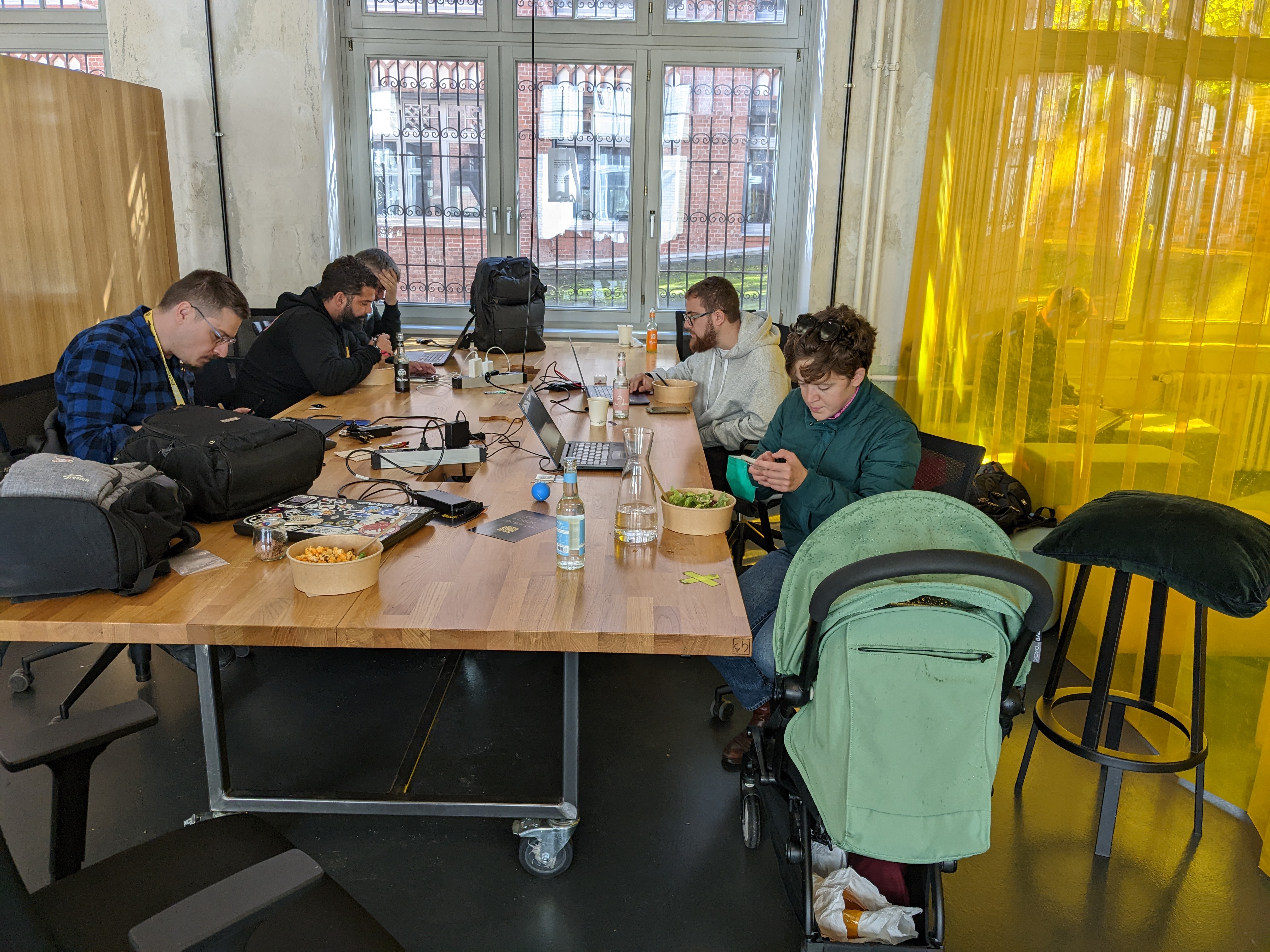
Also took this chance to enjoy team lunches together, including with Celina :)
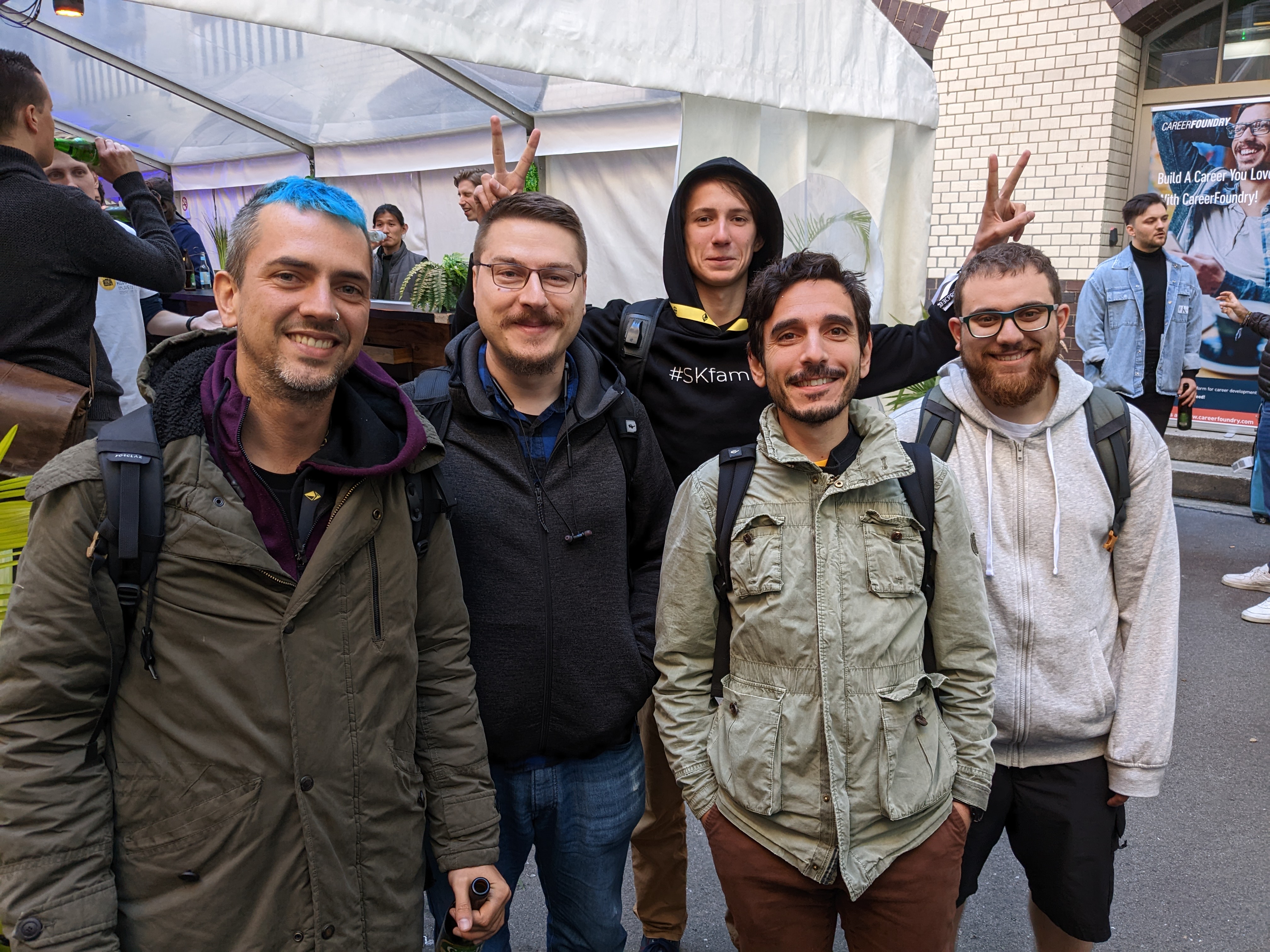
Finally we bonded together through the entire event and even met external rotki contributors, like Pablo pictured here on the left.
v1.25.3
In September we also released rotki v1.25.3, a bugfix release that was building on top of 1.25.2 adding lots of improvements but also fixing bugs our users found.
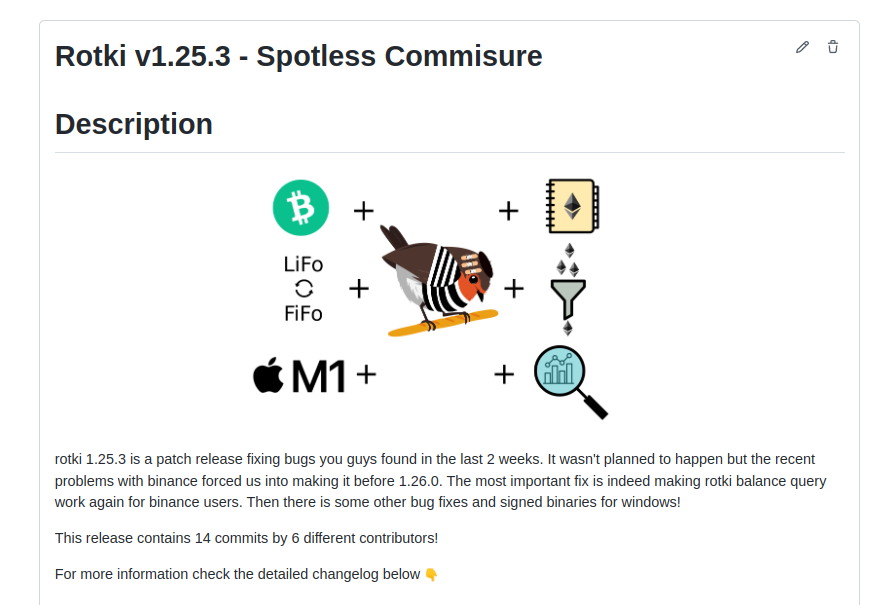
October
October was also a very busy month. Including a major release and the trip to Bogota, for Devcon.
Bogota - EthBogota
Kelsos, Alexey and I flew to Bogota, Colombia to participate in a few events there. First was the EthBogota hackathon
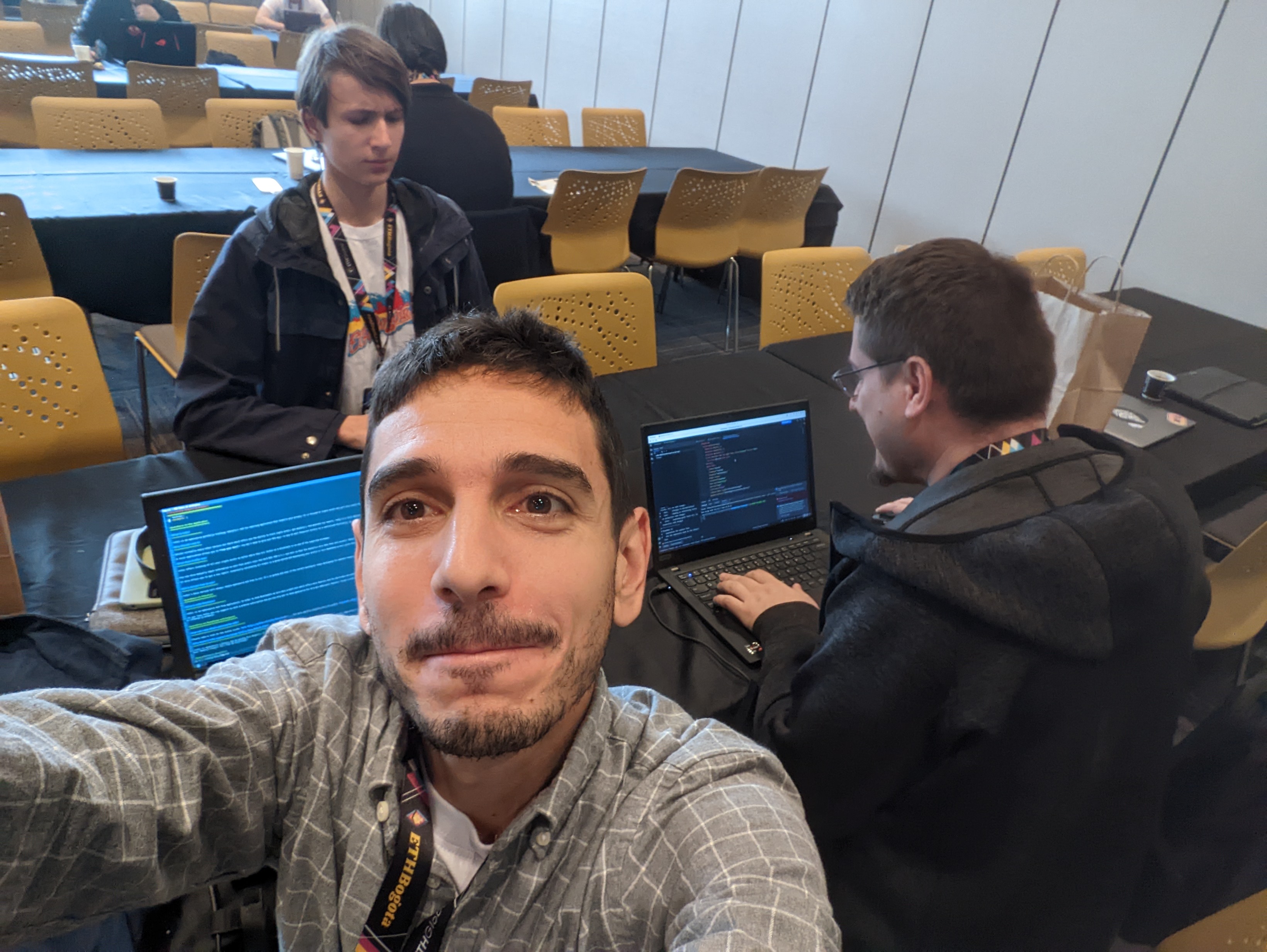
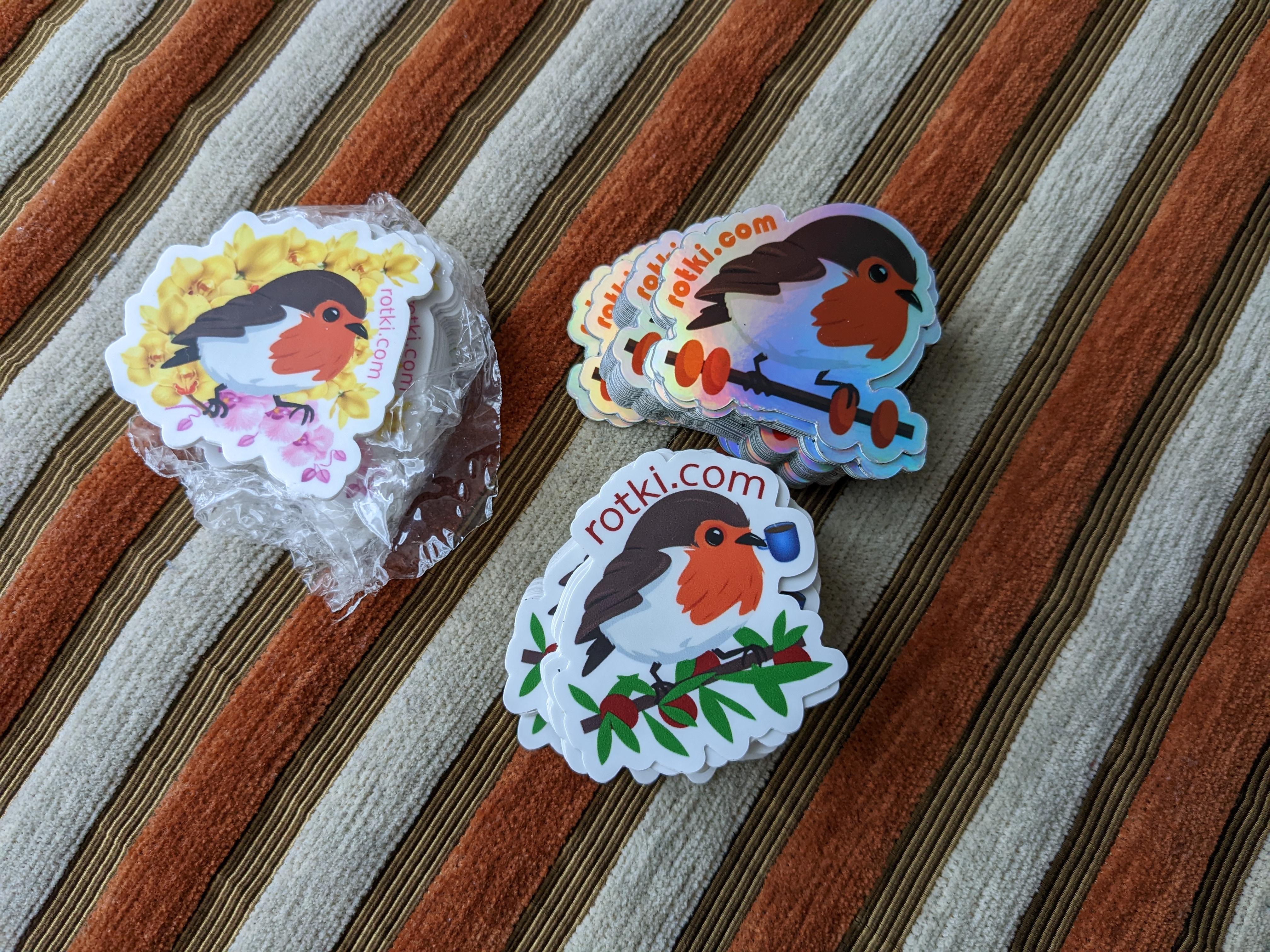
There we met many like-minded hackers, hacked on rotki related issues and tried to get more people involved with rotki. Hackathons are a great place to find new contributors and to shill an opensource project.
Bogota - Schelling point
After that there was an one day event called schelling point, where I participated in a panel
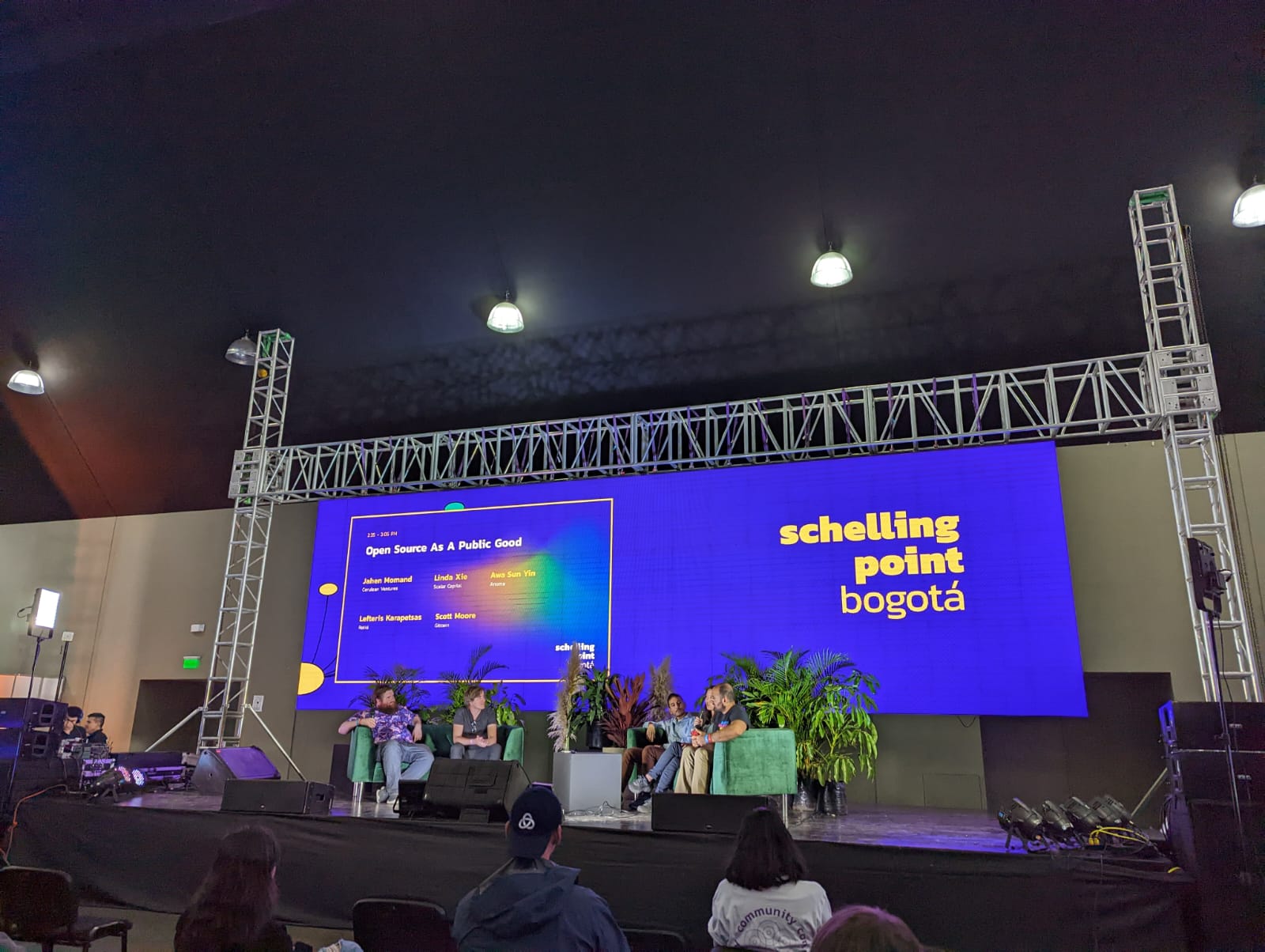
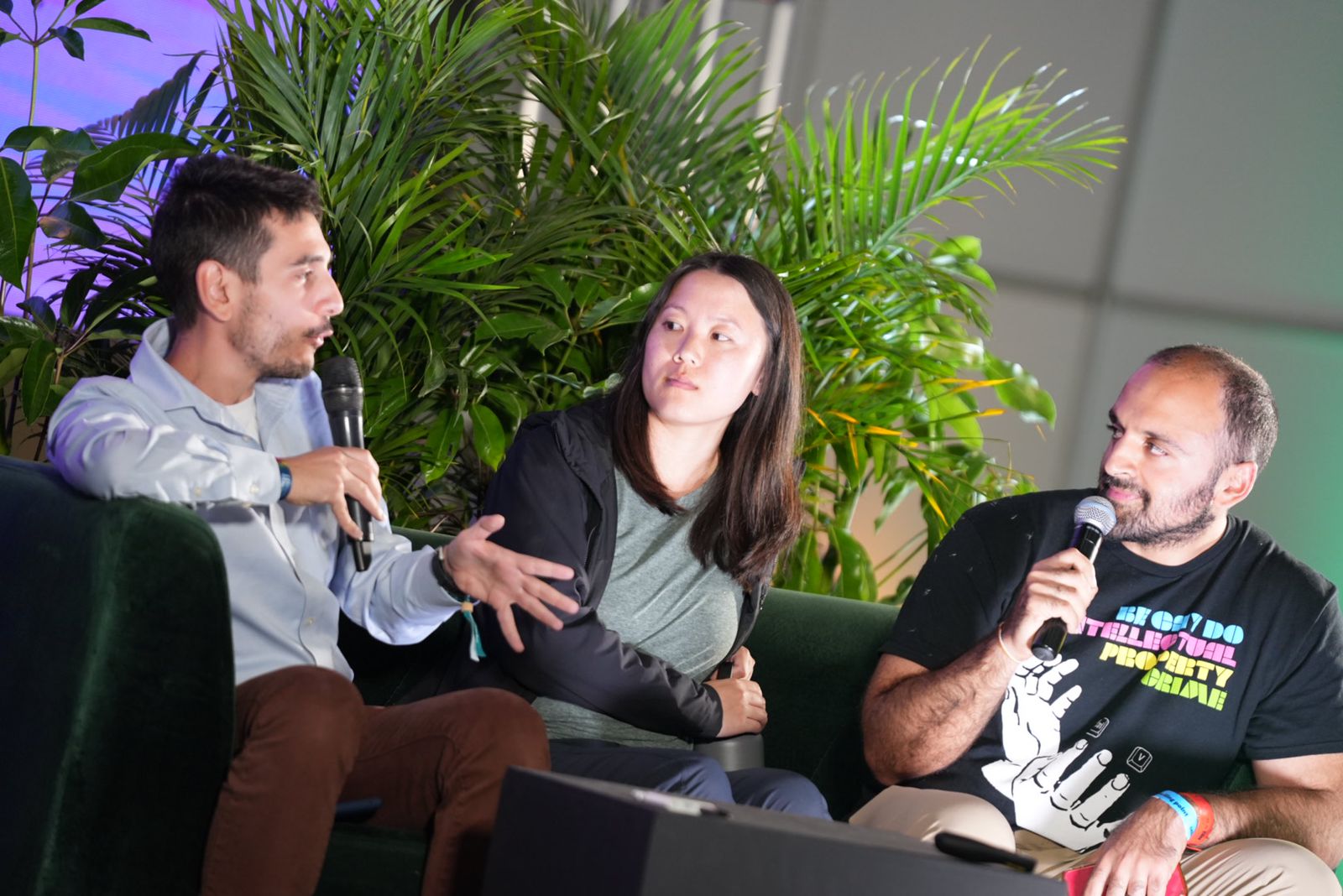
There we discussed about how opensource is a public good, what the challenges are but also what are the benefits. As usual the problem of sustainably funding opensource came up.
Bogota - Devcon
And finally we had our first ethereum devcon in 3 years. It was a very long time since Japan when the last devcon happened.
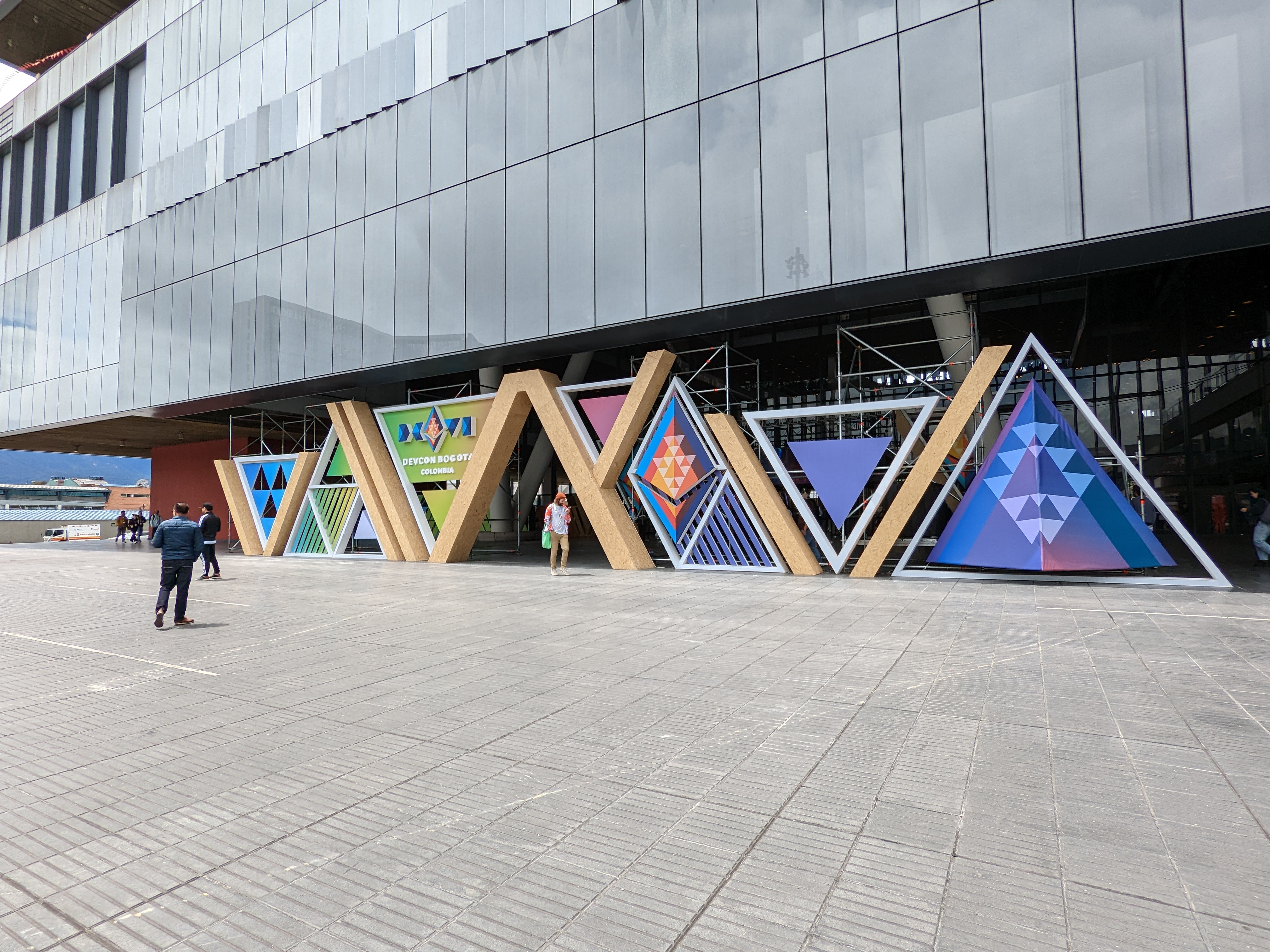
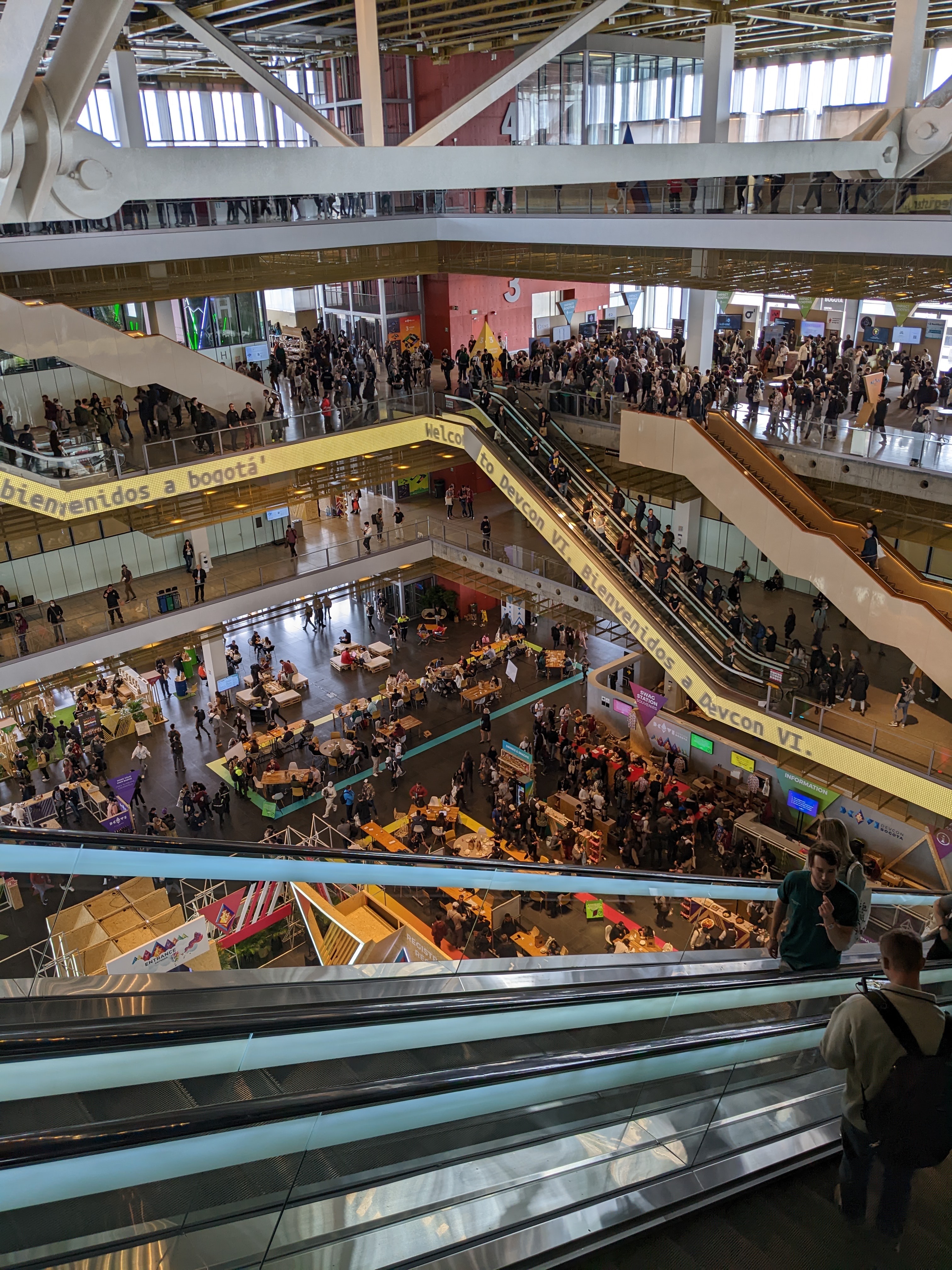
There I (Lefteris) presented about the modular opensource transaction decoding system we have in rotki and how this can be generalized and used by other applications.
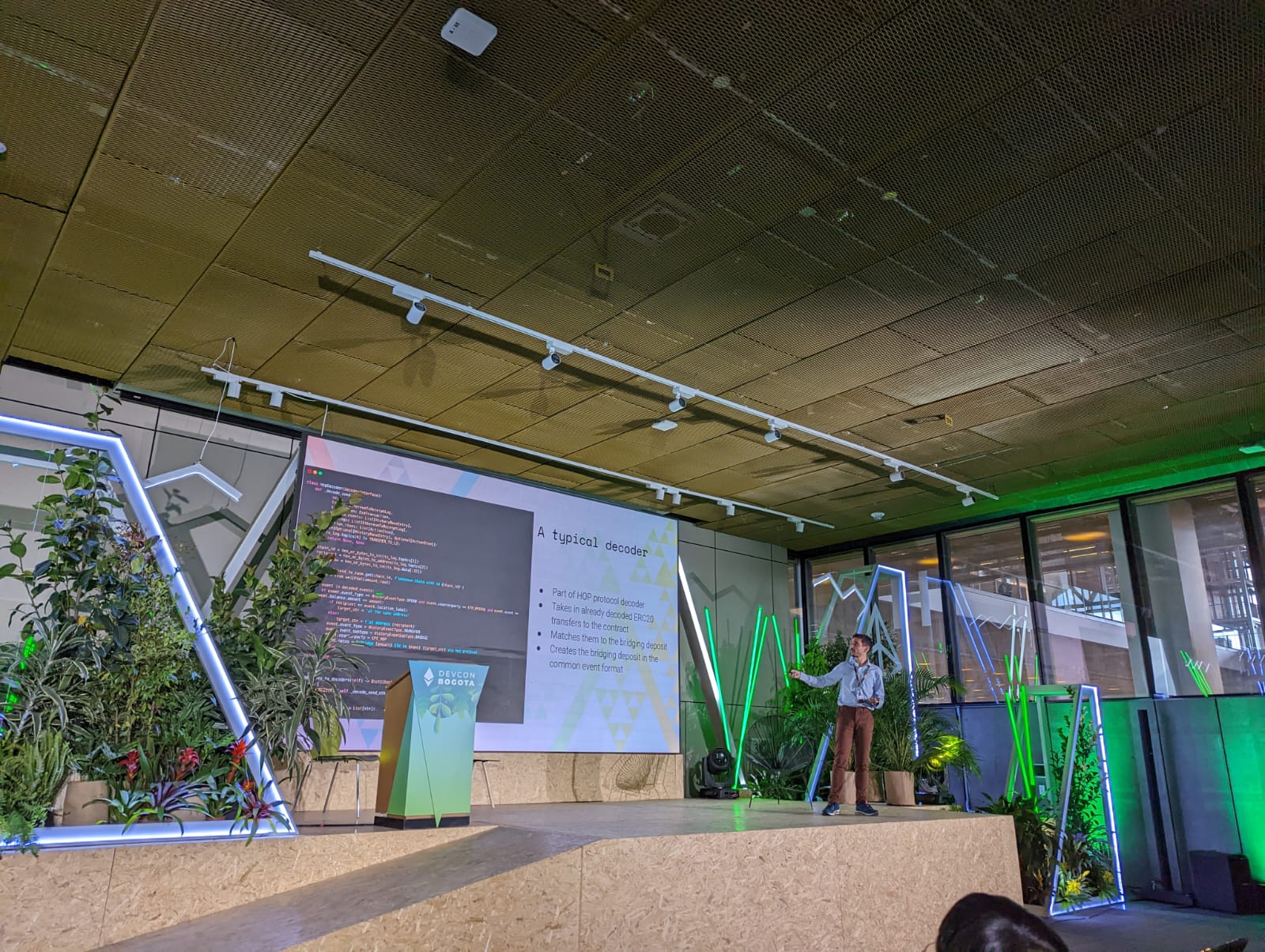
Kelsos also presented about rotki in general, its architecture, our progress and about how opensource is core to what we do.
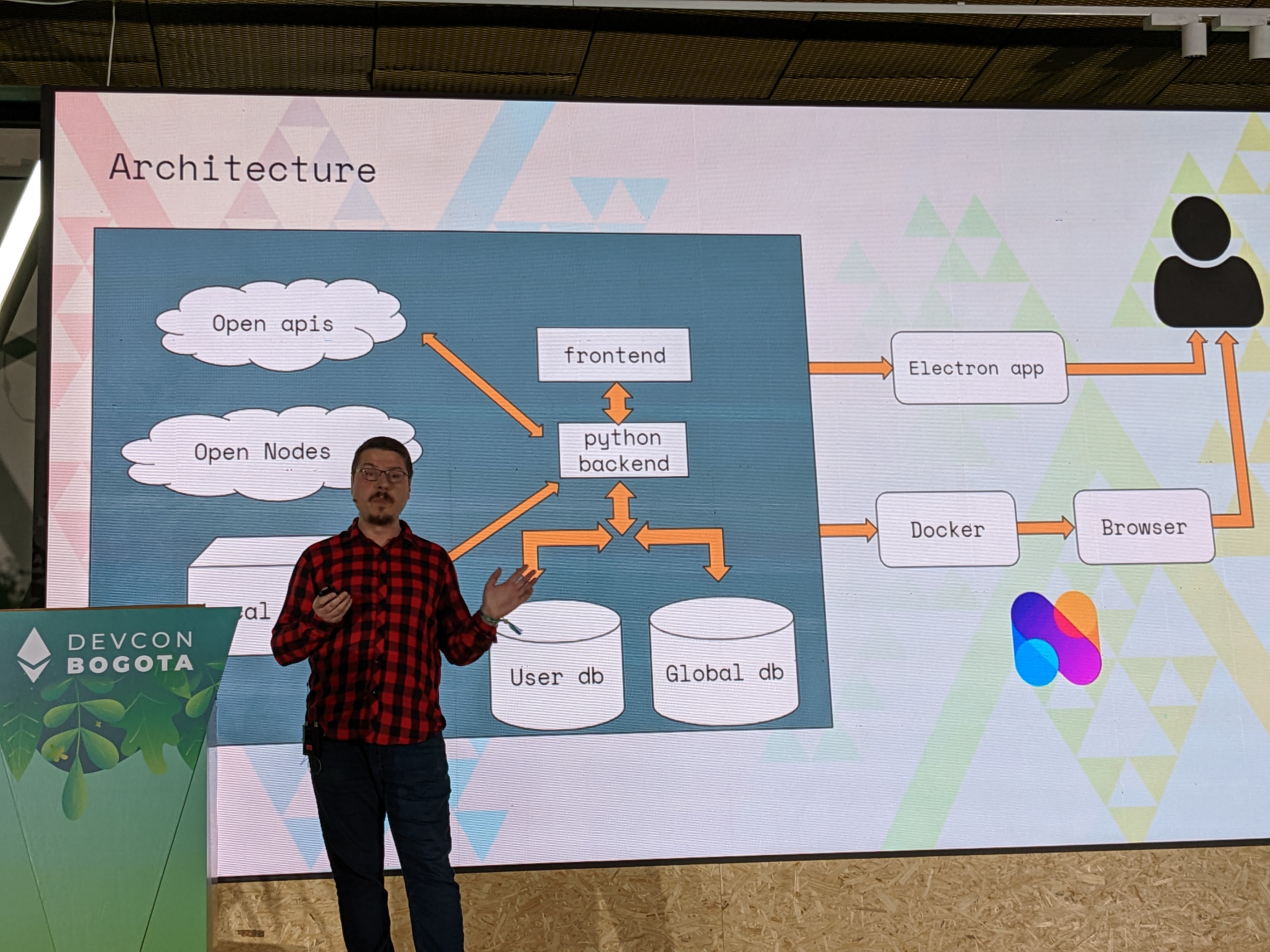
All in all it was an amazing experience. We met many like-minded people, many rotki users and external contributors and got re-affirmation that what we are building is useful. What’s more we got lots of feedback on things that could improve and have adjusted our future planning accordingly.
Bogota - Team building
Since we were on the other side of the world and we are a remote team, we took this chance to do some team building events. Mostly hikes and sightseeing so we can experience a different location together and create team bonds that will hopefully last for long. In the pictures below first is Lake Guatavita where the legend of El Dorado comes from and second is La Chorrera, the tallest watterfal in Colombia.
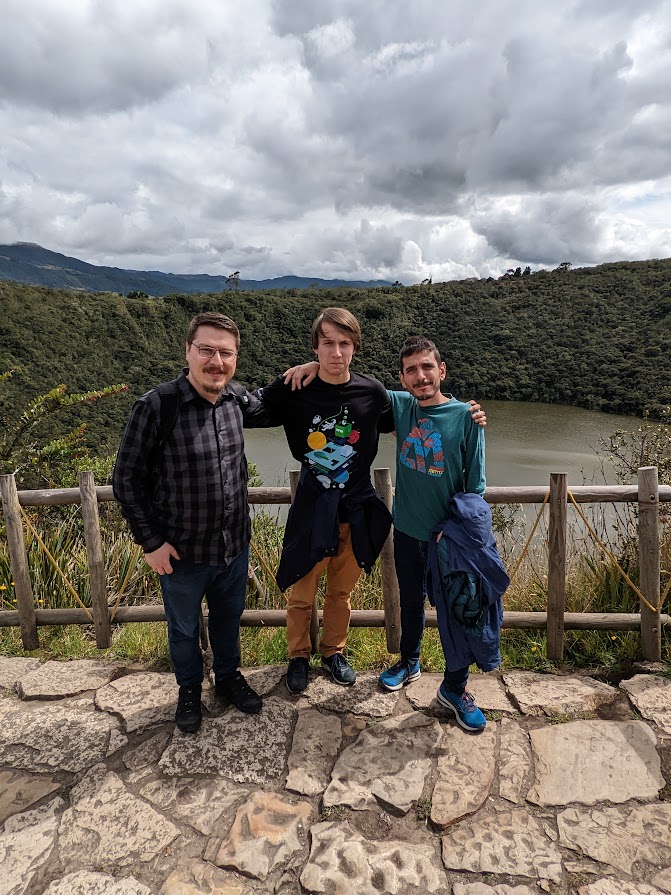
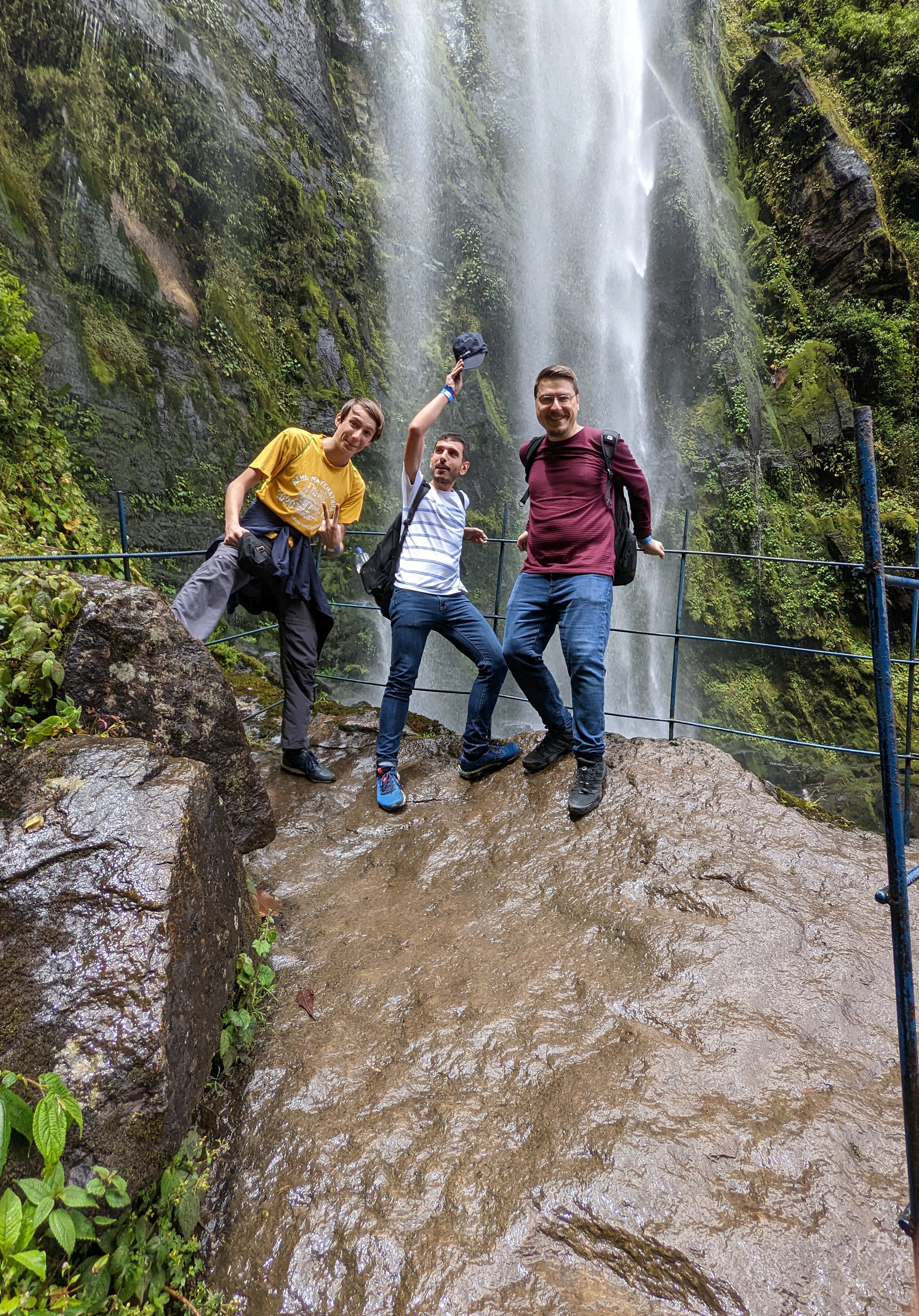
v1.26.0
Right after coming back from Colombia, we released our latest major release for which we have been working since August, 1.26.0.
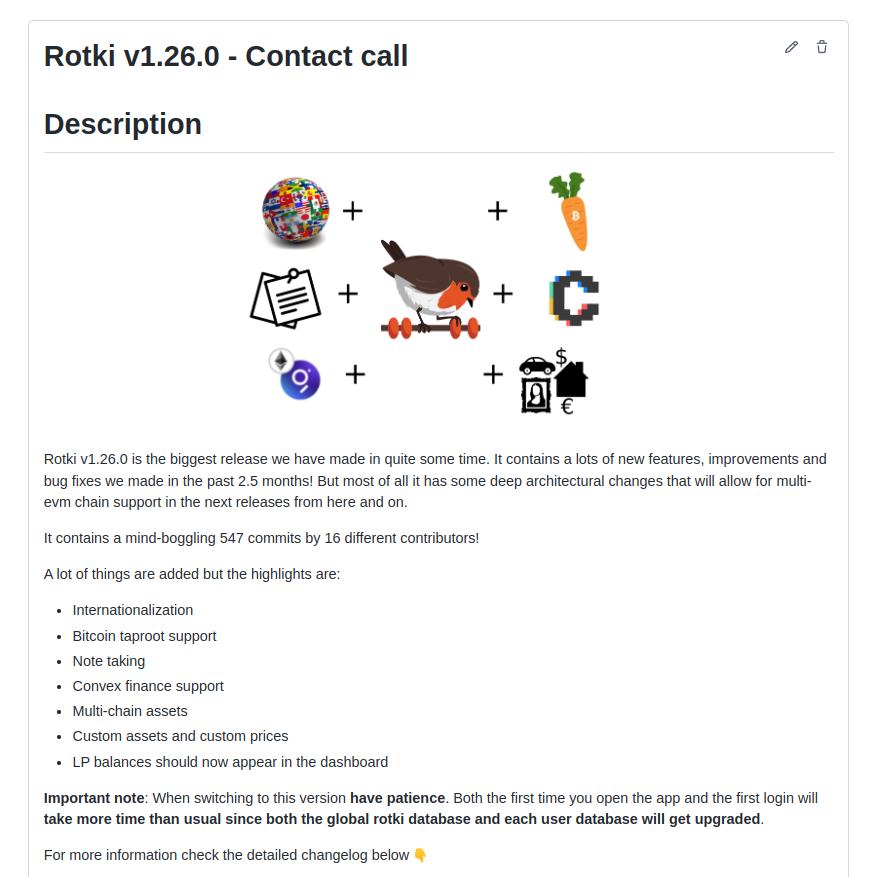
This included among others:
- Internationalization
- Bitcoin taproot support
- Note taking
- Convex finance support
- Multi-chain assets
- Custom assets and custom prices
- LP balances in the dashboard
November
November was a hands down and working month. The team was working on 3 things.
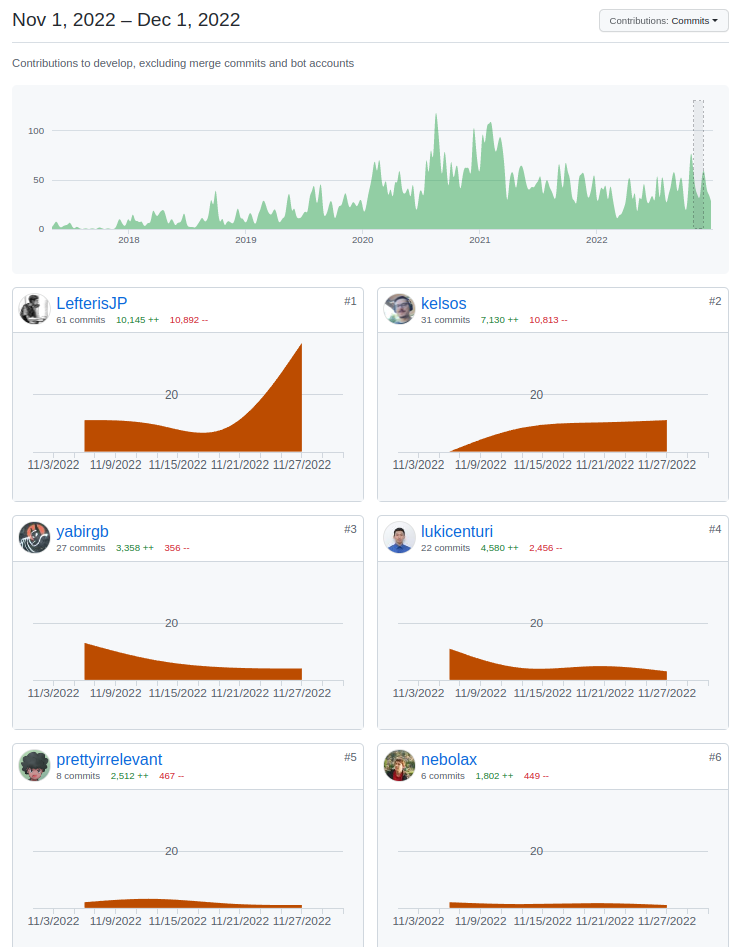
- Website Infrastructure
- Bug fixes
- Next major release
And we also released 1.26.1, a release that fixed bugs seen since 1.26.0.
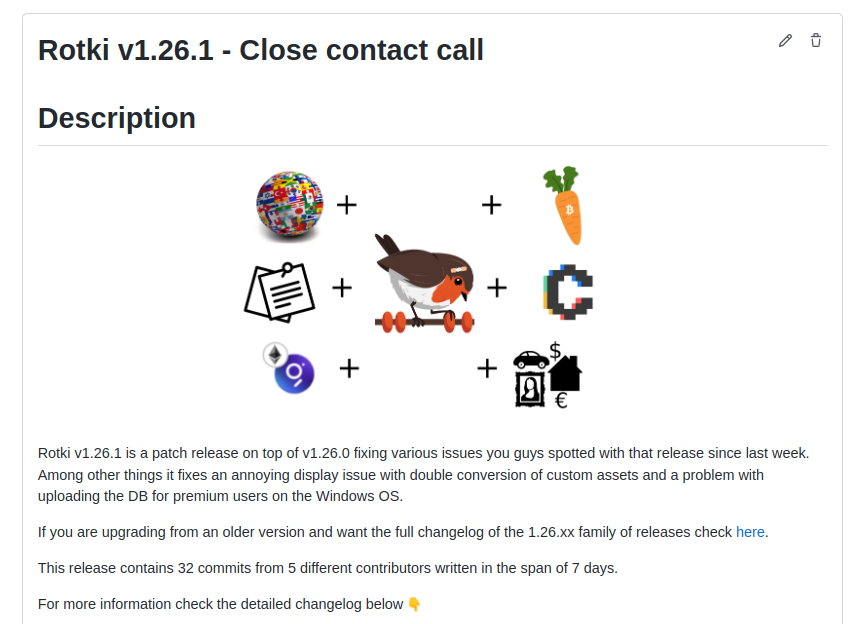
December
And finally we come to the last month of the year that has not even ended yet.
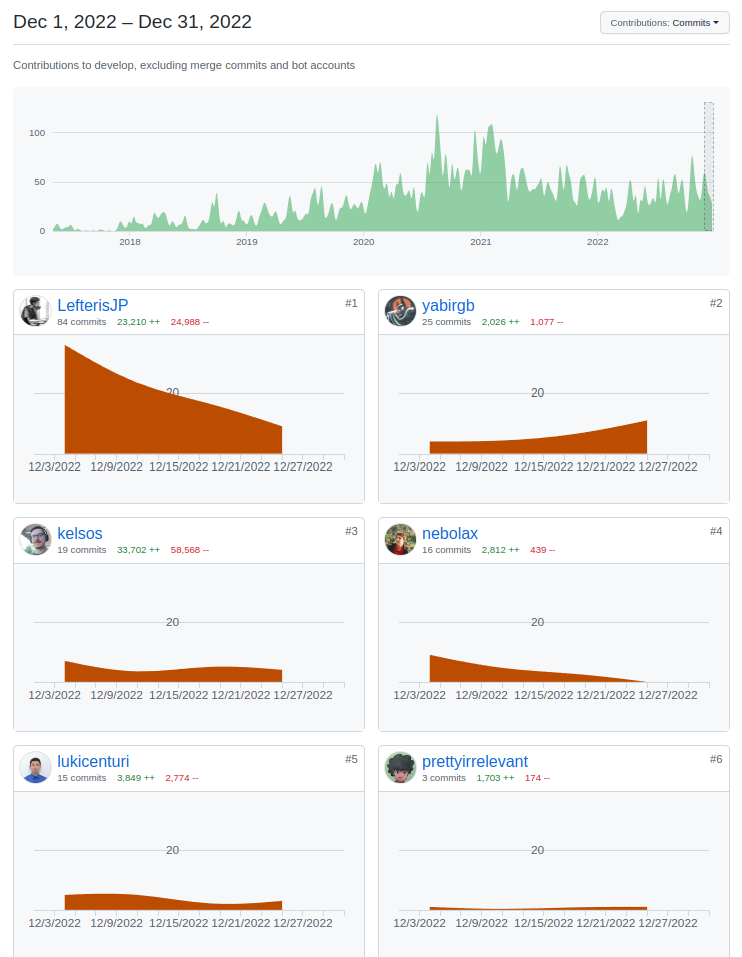
The team had a lot of deserved time off for the holidays but also worked hard on putting out minor improvements and bug fixes while also working on the upcoming v1.27.0 release.
In December we released two patch releases.
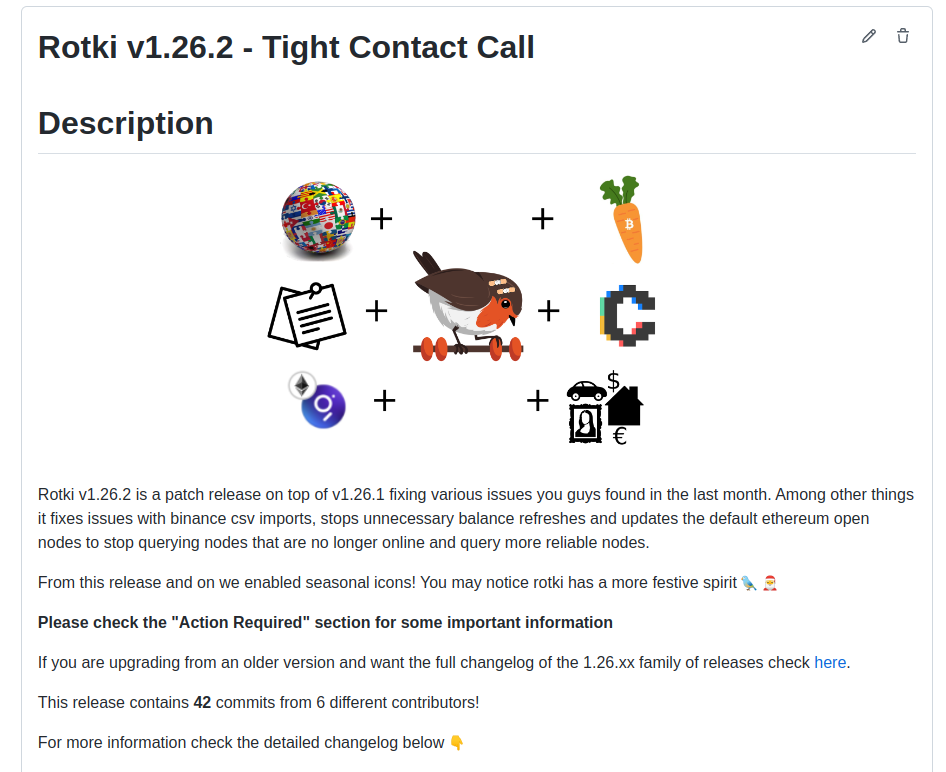
1.26.2 which among many other things replaced the default open ethereum nodes with modern ones which are faster and as such provided a big performance improvement for our ethereum users.
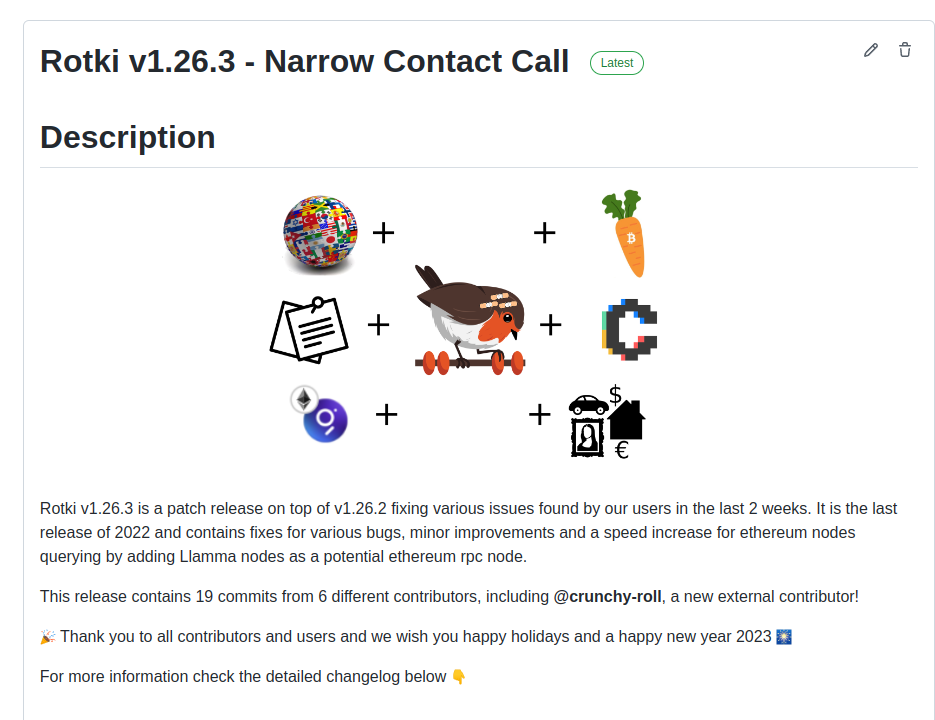
1.26.3 which fixed a lot of bugs our users saw and also provided minor improvements in the user experience.
In general the team is laser focused, as we go in the new year to release 1.27.0 which will, among other things, bring full Optimism support
Closing
Looking back at 2022 we did a lot more than I expected we would. Achieved so much but also spent time growing. I think, it’s the year rotki “grew up”. Growing from 3 devs to 6 devs and 1 non-technical person is not a small feat! Neither was it easy. I hope we can continue to build rotki into the tool that you guys want and have a lot of happy users and contributors. Here is to a more productive, more succesful and happier new year 2023!
That’s all!
If you want more info on Rotki:

